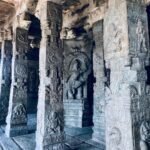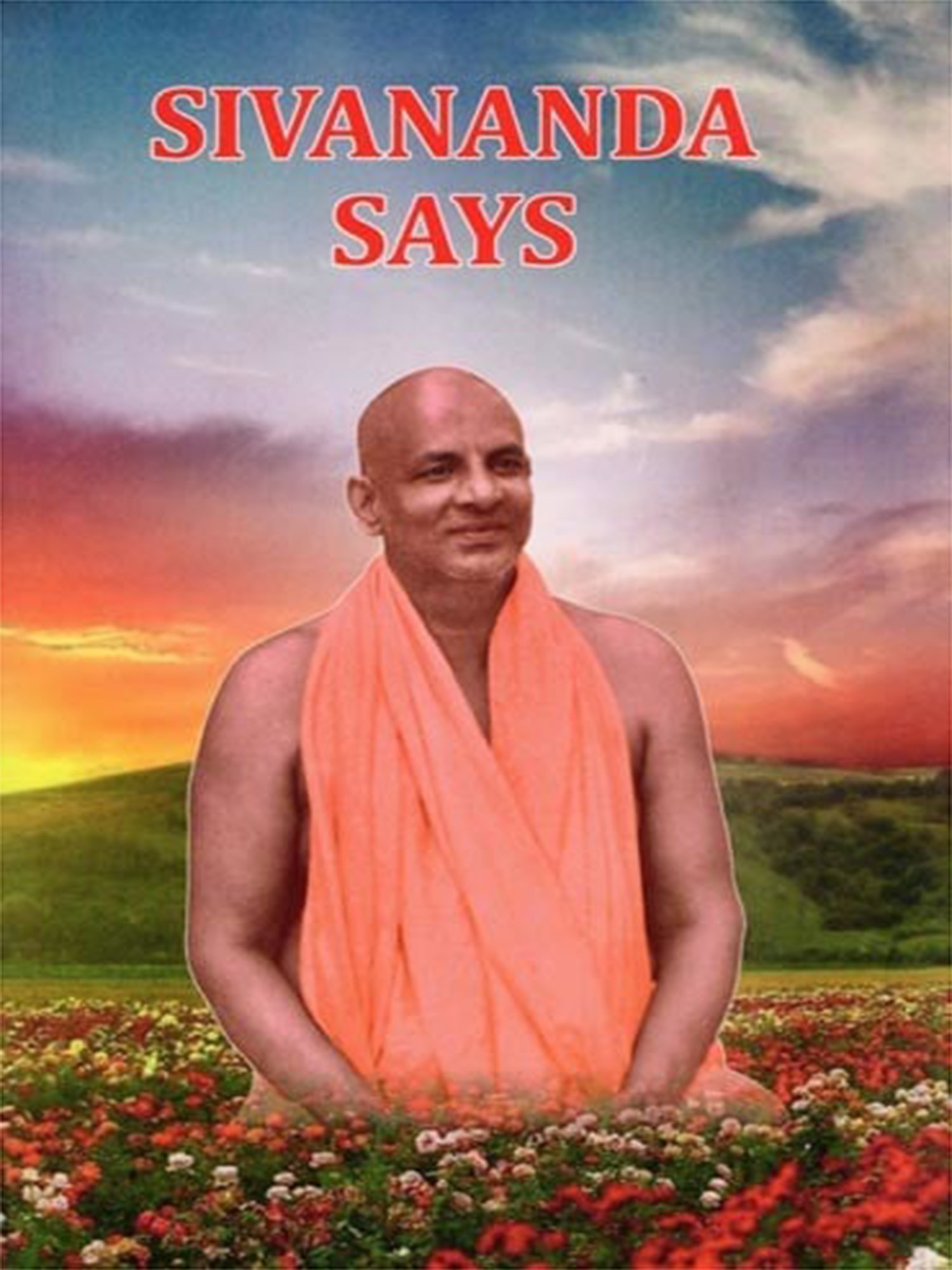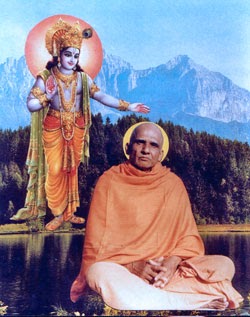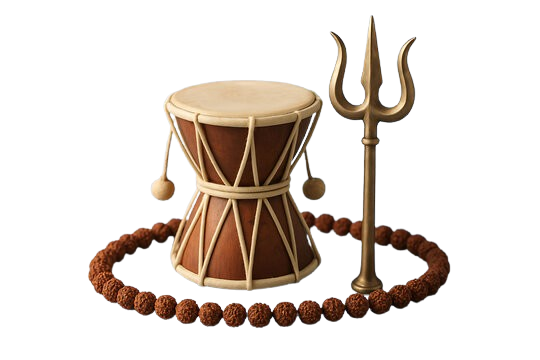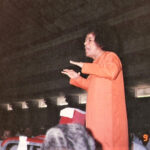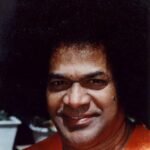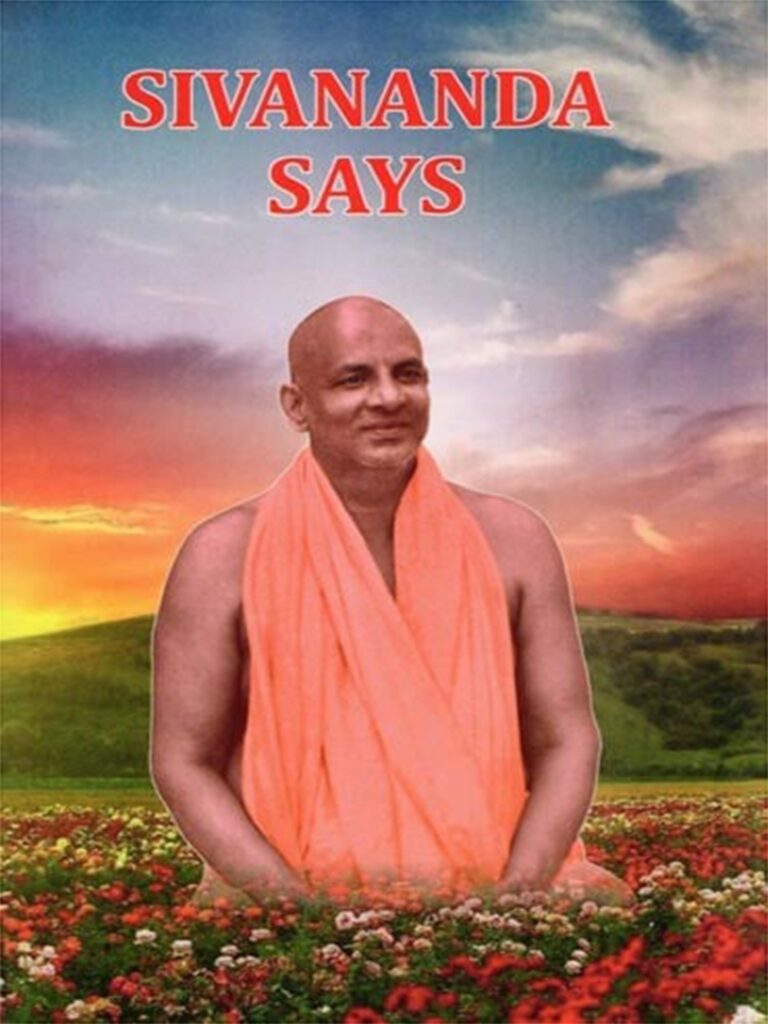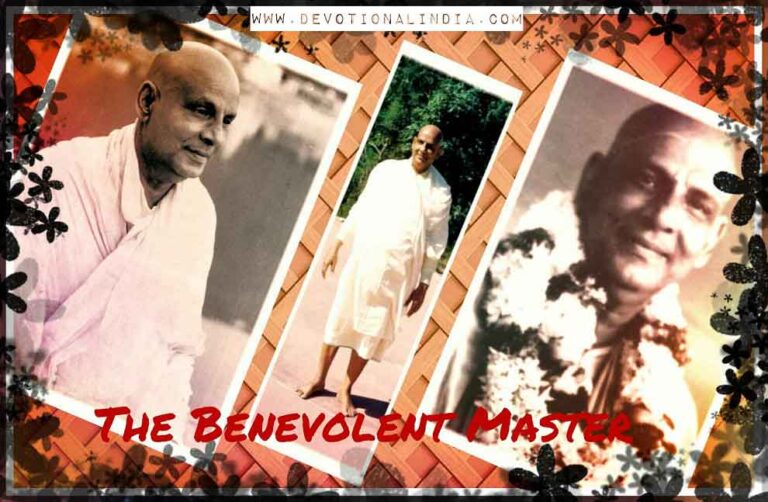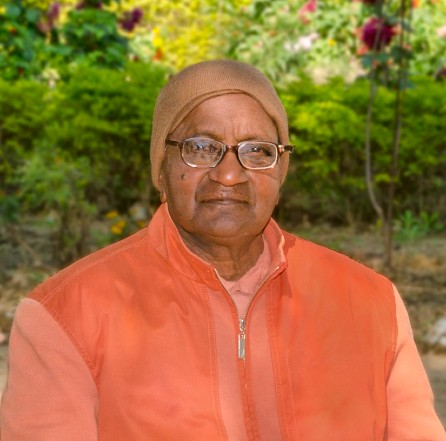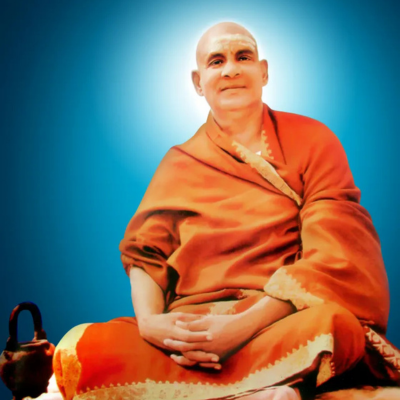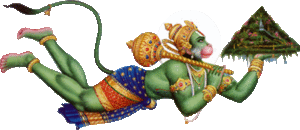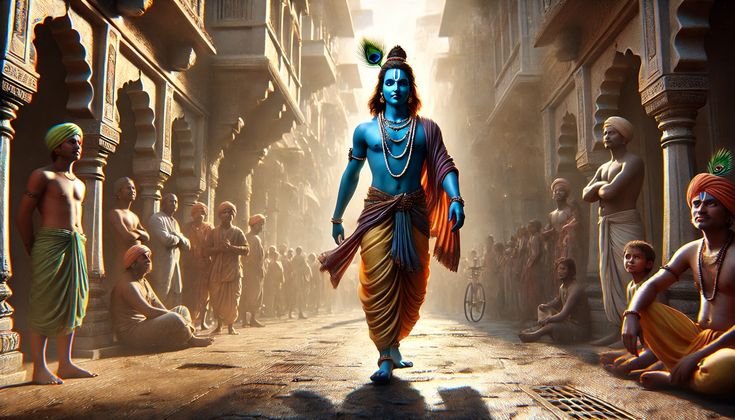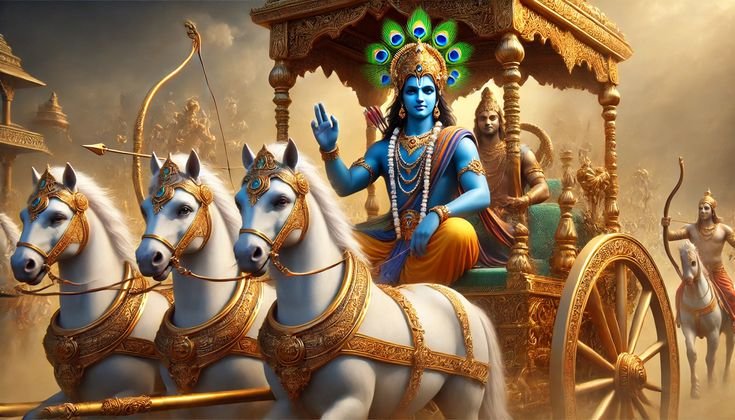Chapter Thirteen
Chapter 13
Ksetra Ksetrajna Vibhaaga Yoga
The thirteenth chapter of the Bhagavad Gita is “Ksetra Ksetrajna Vibhaaga Yoga”. The word “kshetra” means “the field”, and the “kshetrajna” means “the knower of the field”. We can think of our material body as the field and our immortal soul as the knower of the field. In this chapter, Krishna discriminates between the physical body and the immortal soul. He explains that the physical body is temporary and perishable whereas the soul is permanent and eternal. The physical body can be destroyed but the soul can never be destroyed. The chapter then describes God, who is the Supreme Soul. All the individual souls have originated from the Supreme Soul. One who clearly understands the difference between the body, the Soul and the Supreme Soul attains the realization of Brahman.
Bhagavad Gita 13.1
अर्जुन उवाच प्रकृतिं पुरुषं चैव क्षेत्रं क्षेत्रज्ञमेव च। एतद्वेदितुमिच्छामि ज्ञानं ज्ञेयं च केशव।।13.1।।
arjuna uvācha prakṛitiṁ puruṣhaṁ chaiva kṣhetraṁ kṣhetra-jñam eva cha etad veditum ichchhāmi jñānaṁ jñeyaṁ cha keśhava
arjunaḥ uvācha—Arjun said; prakṛitim—material nature; puruṣham—the enjoyer; cha—and; eva—indeed; kṣhetram—the field of activities; kṣhetra-jñam—the knower of the field; eva—even; cha—also; etat—this; veditum—to know; ichchhāmi—I wish; jñānam—knowledge; jñeyam—the goal of knowledge; cha—and; keśhava—Krishna, the killer of the demon named Keshi
Translation
Arjuna said, “I wish to learn about Nature and the Spirit, the field and the knower of the field, knowledge and that which ought to be known, O Kesava.”
Commentary
13.1 प्रकृतिम् the Prakriti (matter)? पुरुषम् the Purusha (Spirit or Soul)? च and? एव even? क्षेत्रम् the field? क्षेत्रज्ञम् the knower of the field? एव even? च and? एतत् this? वेदितुम् to know? इच्छामि (I) wish? ज्ञानम् knowledge? ज्ञेयम् what ought to be known? च and? केशव O Kesava.Commentary In some of the books you will not find this verse. If you include this verse also? the number of verses of the Bhagavad Gita will come to 701. Some commentators look upon this verse as an interpolation.We have come to the beginning of the third section of the Gita. Essentially the same knowledge is taught in this section but there are more details.This discourse on Kshetra (matter) is commenced with a view to determine the essential nature of the possessor of the two Prakritis (Natures)? the lower and the higher? described in chapter VII? verses 4 and 5.In the previous discourse a description of the devotee who is dear to the Lord is given from verse 13 to the end. Now the estion arises What sort of knowledge of Truth should he possess The answer is given in this discourse.Nature is composed of the three alities. It transforms itself into the body? senses and the sensual objects to serve the two purposes of the individual soul? viz.? Bhoga (enjoyment) and Apavarga (liberation).The Gita is divided into three sections illustrative of the three words of the Mahavakya or Great Sentence of the Sama Veda — TatTvamAsi (That thou art). In accordance with this view the first six chapters deal with the path of action or Karma Yoga and the nature of the thou (TvamPada).
The next six chapters explain the path of devotion or Bhakti Yoga and the nature of That (TatPada). The last six chapters treat of the path of knowledge or Jnana Yoga and the nature of the middle term art (AsiPada) which establishes the identity of the individual and the Supreme Soul (Jiva Brahma Aikyam).Arjuna now wishes to know in detail the difference between Prakriti and Purusha (Matter and Spirit). He desires to have a discriminative knowledge of the difference between them.
Bhagavad Gita 13.2
श्री भगवानुवाचइदं शरीरं कौन्तेय क्षेत्रमित्यभिधीयते।एतद्यो वेत्ति तं प्राहुः क्षेत्रज्ञ इति तद्विदः।।13.2।।
śhrī-bhagavān uvācha idaṁ śharīraṁ kaunteya kṣhetram ity abhidhīyate etad yo vetti taṁ prāhuḥ kṣhetra-jña iti tad-vidaḥ
śhrī-bhagavān uvācha—the Supreme Divine Lord said; idam—this; śharīram—body; kaunteya—Arjun, the son of Kunti; kṣhetram—the field of activities; iti—thus; abhidhīyate—is termed as; etat—this; yaḥ—one who; vetti—knows; tam—that person; prāhuḥ—is called; kṣhetra-jñaḥ—the knower of the field; iti—thus; tat-vidaḥ—those who discern the truth
Translation
The Blessed Lord said, “O Arjuna, this body is called the field; he who knows it is called the knower of the field by those who know them.”
Commentary
13.2 इदम् this? शरीरम् body? कौन्तेय O son of Kunti (Arjuna)? क्षेत्रम् the field? इति thus? अभिधीयते is called? एतत् this? यः who? वेत्ति knows? तम् him? प्राहुः (they) call? क्षेत्रज्ञः the knower of the field? इति thus? तद्विदः the knowers of that.Commentary Kshetra literally means field. The body is so called because the fruits (harvest) of actions in the form of pleasure and pain are reaped in it as in a field. The physical? the mental and the causal bodies go to constitute the totality of the field. It is not the physical body alone that forms the field.He who knows the field and he who beholds it as distinct from himself through knowledge is the knower of the field or matter.Those who know them The sages.
Bhagavad Gita 13.3
क्षेत्रज्ञं चापि मां विद्धि सर्वक्षेत्रेषु भारत। क्षेत्रक्षेत्रज्ञयोर्ज्ञानं यत्तज्ज्ञानं मतं मम।।13.3।।
kṣhetra-jñaṁ chāpi māṁ viddhi sarva-kṣhetreṣhu bhārata kṣhetra-kṣhetrajñayor jñānaṁ yat taj jñānaṁ mataṁ mama
kṣhetra-jñam—the knower of the field; cha—also; api—only; mām—me; viddhi—know; sarva—all; kṣhetreṣhu—in individual fields of activities; bhārata—scion of Bharat; kṣhetra—the field of activities; kṣhetra-jñayoḥ—of the knower of the field; jñānam—understanding of; yat—which; tat—that; jñānam—knowledge; matam—opinion; mama—my
Translation
Do thou also know Me as the knower of the field in all fields, O Arjuna. Knowledge of both the field and the knower of the field is considered by Me to be the knowledge.
Commentary
13.3 क्षेत्रज्ञम् the knower of the field? च and? अपि also? माम् Me? विद्धि know? सर्वक्षेत्रेषु in all fields? भारत O descendant of Bharata (Arjuna)? क्षेत्रक्षेत्रज्ञयोः of the field and of the knower of the field? ज्ञानम्,knowledge? यत् which? तत् that? ज्ञानम् knowledge? मतम् is considered to be? मम My.Commentary The fields are different but the knower of the field is one. The individual souls (Jivatmas) are different but the Supreme Soul (Paramatma) is one. Wherever there is mind? there are lifreath? egoism and the individual consciousness or reflected intelligence side by side. He who has the sense of duality will take birth again and again. This delusion of dulaity can only be removed by knowledge of the identity of the individual soul and the Absolute. I am happy? I am miserable?
I am the doer of this action? and I am the enjoyer of this experience — these are the experiences of all human beings. Therefore the individual soul is bound to Samsara and is subject to pleasure and pain? and the individual souls are in different bodies. But? the Supreme Soul is free from pleasure and pain. It is not bound to Samsara. It is eternally free. It is one without a second.If there is only one individual soul in all bodies? all should have the same experience at the same time. If Rama suffers from abdominal colic? Krishna also should experience the pain at the same time. If John experiences joy? Jacob also should have a similar experience. If Choudhury is stung by a scorpion? Banerjee also should suffer from the pain. But this is not the case. When Rama suffers? Krishna rejoices.
When John is jubilan? Jacob is depressed. When Choudhury suffers from the sting of a scorpion? Banerjee is enjoying his breakfast. Fields are different? bodies are different? minds are different and the individual souls are different from each other. But the knower in all these fields is one. Pleasure and pain are the Dharmas (functions) of the mind only. The individual soul is in essence identical with the Supreme Soul.The knower of the field or the Self is not affected by pleasure and pain? virtue and vice. He is the silent witness only. Pleasure and pain are the functions of the mind. They are ascribed to the Self through ignorance. The ignorant man regards the physical body as the Self. He is swayed by the two currents of likes and dislikes? he does virtuous and vicious actions and reaps the fruits of these actions? viz.? pleasure and pain? and takes birth again and again. But the sage who knows that the Kshetrajna or the knower of the field or the Self is distinct from the body is not swayed by likes and dislikes. He identifies himself with the pure? eternal? Absolute or the Supreme Self and is always happy and actionless? though he performs actions for the welfare of humanity.
The disease of Timira (partial blindness) which causes perception of what is contrary to truth pertains to the eye but not to the man who perceives. If the disease is removed by proper treatment he perceives things in their true light. Even so ignorance? doubt? pleasure and pain? virtue and vice? likes and dislikes? false perceptions as well as their cause belong to the instrument (the mind) but not to the silent witness? the knower of the field? the Self.In the state of liberation wherein there is annihilation of the mind? there is no ignorance and the play of the two currents of likes and dislikes does not exist there. If false perception? ignorance? pleasure and pain? doubt? bondage? delusion? sorrow? etc.? were the essential properties of the Self? just as heat is the essential property of fire? they could not be got rid of at any time. But there have been sages of Selfrealisation in the past like Sankara? Dattatreya? Jada Bharata and Yajnavalkya who possessed extraordinary supersensual or intuitional knowledge? who were free from false perception? doubt? fear? delusion? sorrow? etc. They were not conscious of Samsara but they had perfect awareness of the Self. Therefore? we will have to conclude that the Self is ever free? pure? perfect? eternal and that ignorance inheres in the instrument (the mind) and not in the Self.Ignorance born of Tamas acts as a veil and prevents man from knowing his essential nature as,the ExistenceKnowledgeBliss Absolute. It causes perception of what is ite the contrary of truth and causes doubt or nonperception of truth. As soon as knowledge of the Self dawns these three forms of ignorance vanish in toto. Therefore these three forms of ignorance are not the attributes of the Self. They belong to the mind? the organ or the instrument. Mind is only an effect or a product of ignorance.The wheel of Samsara or the worldprocess rotates on account of ignorance. It exists only for the ignorant man who perceives the world as it appears to him.There is no Samsara for a liberated sage. Any disease of the eye cannot in any way effect the sun (the dity presiding over the eye). The breaking of the pot will not in any way affect the ether or space in the pot. The water of the mirage cannot render the earth moist. Even so ignorance and its effecs cannot in the least affect the pure? subtle? attributeless? formless? limbless? partless and selfluminous Kshetrajna or the Self. Ignorance does not touch the Self. (Cf.X.20XIII.32XVIII.61)
Bhagavad Gita 13.4
तत्क्षेत्रं यच्च यादृक् च यद्विकारि यतश्च यत्।स च यो यत्प्रभावश्च तत्समासेन मे श्रृणु।।13.4।।
tat kṣhetraṁ yach cha yādṛik cha yad-vikāri yataśh cha yat sa cha yo yat-prabhāvaśh cha tat samāsena me śhṛiṇu
tat—that; kṣhetram—field of activities; yat—what; cha—and; yādṛik—its nature; cha—and; yat-vikāri—how change takes place in it; yataḥ—from what; cha—also; yat—what; saḥ—he; cha—also; yaḥ—who; yat-prabhāvaḥ—what his powers are; cha—and; tat—that; samāsena—in summary; me—from me; śhṛiṇu—listen
Translation
Hear from Me in brief what the field is, of what nature it is, what its modifications are, whence it is, who He is, and what His powers are.
Commentary
13.4 तत् that? क्षेत्रम् field? यत् which? च and? यादृक् what like? च and? यद्विकारि what its modifications? यतः whence? च and? यत् what? सः He? च and? यः who? यत्प्रभावः what His powers? च and? तत् that? समासेन in brief? मे from Me? श्रृणु hear.Commentary I will tell you? O Arjuna? what the field is? why the body is called the field? what are its modifications or changes in other words what transformations it undergoes? what are its properties? what effects arise in it from what causes? to whom it belongs? whether it is cultivated or whether it grows wild.That field refers to the field mentioned in verse 1.Who He is Who is that knower of the field What are His powers (Prabhavas are powers such as the power of seeing? hearing? etc.) which originate from the limiting adjuncts (such as the eys? the ears? etc.) Do thou hear My speech which describes succinctly the real nature of the field and the knower of the field in all these specific aspects.O Arjuna? I am ite sure that thou wilt clearly comprehend the truth on hearing My speech.The body is the field. The ten senses represent the ten bulls. The bulls work unceasingly day and night through the field of the objects of the senses. The mind is the supervisor.
The individual soul is the tenant. The five vital airs (Pranas) are the five labourers. The Primordial Nature is the mistress of the field. This field is Her property. She Herself watches over the field vigilantly. She is endowed with the three alities. Rajas sows the seed Sattva guards it Tamas reaps the harvest. On the threshing floor or MahatTattva (the cosmic mind) with the help of the ox called time? She — Primordial Nature — thrashes out the corn. If the individual soul does evil actions? it sows the seeds of sin? manures with evil? reaps a crop of sin? and undergoes the pains of Samsara? viz.? birth? decay? old age? sickness? and the three kinds of afflictions. If it does virtuous actions it sows the good seeds of virtue and reaps a crop of happiness.Lord Krishna now speaks very highly in the following verse of the true nature of the field and the knower of the field in order to create interest in the hearer.

Bhagavad Gita 13.5
ऋषिभिर्बहुधा गीतं छन्दोभिर्विविधैः पृथक्।ब्रह्मसूत्रपदैश्चैव हेतुमद्भिर्विनिश्िचतैः।।13.5।।
ṛiṣhibhir bahudhā gītaṁ chhandobhir vividhaiḥ pṛithak brahma-sūtra-padaiśh chaiva hetumadbhir viniśhchitaiḥ
ṛiṣhibhiḥ—by great sages; bahudhā—in manifold ways; gītam—sung; chhandobhiḥ—in Vedic hymns; vividhaiḥ—various; pṛithak—variously; brahma-sūtra—the Brahma Sūtra; padaiḥ—by the hymns; cha—and; eva—especially; hetu-madbhiḥ—with logic; viniśhchitaiḥ—conclusive evidence
Translation
Sages have sung in many ways, with various distinctive chants and also with suggestive words indicative of the Absolute, full of reasoning and decisive.
Commentary
13.5 ऋषिभिः by Rishis? बहुधा in many ways? गीतम् sung? छन्दोभिः in chants? विविधैः various? पृथक् distinctive? ब्रह्मसूत्रपदैः in the suggestive words indicative of Brahman? च and? एव even? हेतुमद्भिः full of reasoning? विनिश्चितैः decisive.Commentary Many sages (such as Vasishtha) have talked about it (the true nature of the field and its knower) since ancient times. The ancient hymns? such as the Rig Veda? have explained this in various ways.The word Brahma Sutras refers to the Vedanta Sutras written by Vyasa or Badarayanacharya in order to reconcile the mutually contradictory passages in the Upanishads. A study of the Brahma Sutras is very necessary in order to comprehend the esoteric significance of the Upanishads. The Braham Sutras are also known by the name Sariraka Sutras because fifteen Sutras in the third Pada of the second chapter deal with the Sarira or Kshetra (body).The true nature of the field and its knower has also been taught in the Brahma Sutras which deal with Brahman such as Atmanyevopasita (only as the Self? let a man meditate on It.) (Brihadaranyaka Upanishad? I.4.7).They are full of reasoning? convincing and decisive. There is no doubt in the words or passages that treat of Brahman.
Bhagavad Gita 13.6
महाभूतान्यहङ्कारो बुद्धिरव्यक्तमेव च।इन्द्रियाणि दशैकं च पञ्च चेन्द्रियगोचराः।।13.6।।
mahā-bhūtāny ahankāro buddhir avyaktam eva cha indriyāṇi daśhaikaṁ cha pañcha chendriya-gocharāḥ
The great elements, egoism, intellect, and also the Unmanifested Nature, the ten senses, and one mind, and the five objects of the senses.
Translation
mahā-bhūtāni—the (five) great elements; ahankāraḥ—the ego; buddhiḥ—the intellect; avyaktam—the unmanifested primordial matter; eva—indeed; cha—and; indriyāṇi—the senses; daśha-ekam—eleven; cha—and; pañcha—five; cha—and; indriya-go-charāḥ—the (five) objects of the senses;
Commentary
13.6 महाभूतानि the great elements? अहङ्कारः egoism? बुद्धिः intellect? अव्यक्तम् the unmanifested (MulaPrakriti)? एव even? च and? इन्द्रियाणि the senses? दश ten? एकम् one? च and? पञ्च five? च and? इन्द्रियगोचराः objects of the senses.Commentary The field and its modifications are described in this verse. The twentyfour principles of the Sankhya school of philosophy are mentioned here.Great elements Earth? water? fire? air and ether are so called because they pervade all modifications of matter. The elements here referred to are the subtle? not the gross ones.Egoism is the cause of the great elements. It is the selfarrogating principle. Intellect is the cause of egoism. The function of the intellect is determination. Buddhi is the faculty of determination. The cause of the intellect is the Unmanifested (which is the undifferentiated energy of the Lord). (Cf.VII.14 Daivi hyesha gunamayi mama maya duratyaya — This divine illusion of Mine? caused by the alities? is difficult to cross over.) The above Nature is divided eightfold (Cf.VII.4).The ten senses are the five organs of knowledge (ears? skin? eyes? tongue and nose)? so called because they enable the mind to get knowledge of the external world?
and the five organs of action (hands? feet? mouth? anus and the generative organ)? so called because they perform actions.The one This is the mind. This is the eleventh sense whose function is thinking and doubting (Sankalpa and Vikalpa).The five objects of the senses are sound? touch? form (colour)? taste and smell. These are the fivefol pastures of the senses.All the great elements? egoism? intellect?
the senses and mind are all absorbed in the Unmanifested at the time of the cosmic dissolution.Mind is Maya. Mind is Avidya (ignorance). Mind is at the root of all activities. It gives strength to desires? fosters fear and builds castles in the air. It confers force on egoism and stimultates,aspirations. Every tendency has its origin in the mind. It augments passions? gives strength to hope and awakens the sense of duality. It increases ignorance and plunges the senses in the ocean of senseobjects. It creates distinctions and differences. It separates? divides and limits. It is a strong wall or an iron barrier that stands between the individual soul and the Absolute. It is this mind that has brought Brahman to the condition of the individual soul. It is the storehouse of error? cravings? doubt? delusion and ignorance. It is an everrevolving wheel that generates thoughts. It is a miraculous thoughtproducing machine. It creates at one moment. It destroys at the next moment.
Bhagavad Gita 13.7
इच्छा द्वेषः सुखं दुःखं सङ्घातश्चेतनाधृतिः।एतत्क्षेत्रं समासेन सविकारमुदाहृतम्।।13.7।।
ichchhā dveṣhaḥ sukhaṁ duḥkhaṁ saṅghātaśh chetanā dhṛitiḥ etat kṣhetraṁ samāsena sa-vikāram udāhṛitam
ichchhā—desire; dveṣhaḥ—aversion; sukham—happiness; duḥkham—misery; saṅghātaḥ—the aggregate; chetanā—the consciousness; dhṛitiḥ—the will; etat—all these; kṣhetram—the field of activities; samāsena—comprise of; sa-vikāram—with modifications; udāhṛitam—are said
Translation
Desire, hatred, pleasure, pain, the aggregate (body), intelligence, and fortitude—the field has thus been briefly described with its modifications.
Commentary
13.7 इच्छा desire? द्वेषः hatred? सुखम् pleasure? दुःखम् pain? सङ्घातः the aggregate? चेतना intelligence? धृतिः fortitude? एतत् this? क्षेत्रम् field? समासेन briefly? सविकारम् with modifications? उदाहृतम् has been described.Commentary These principles form the frame or the skelteton on which the world of forms is built. All these are mental states and treated as properties of the body by the Sankhya school of thought. According to the NyayaYaiseshika schools? these are the inherent alities of the Self. The modifications have a beginning and an end. Only that which is unchanging can be the witness of these modifications. The knower of the field is unchanging. He is the witness of the field and its modifications.Desire is a modification of the mind. It is an earnest longing for an object. It is a Vritti (thoughtwave) born of Rajas which urges a man who has once experienced a certain object of pleasure to get hold of it as conducive to his pleasure when he beholds the same object again. This is the property of the inner sense. It is the field because it is knowable.You enjoy a certain sensual object. The impression of this is produced in the subconscious mind. This impression is vivified or revived through memory or remembrance of the sensual pleasure. Then desire arises to enjoy the object again. Repetition of the sensual enjoyment intensifies the memory and desire. Renunciation of the objects and meditation thin out the impressions and the desires.If anyone gives a description of the beautiful scenery of Badri Narayana or Mount Kailasa at once a desire arises in our minds to vist those places. If a man says that very good sweetmeats and mangoes are available in Bangalore? a desire to get these objects crops up in your mind. Therefore memory of sensual enjoyments and the hearing of the alities of the sensual objects are the root causes of desires. Hope fattens the desires. Hope gives a new lease of life to desires. Desire excites the mind and the senses. Desire makes
the mind restless. Desire makes the mind wander in the sensual grooves.An object which is sweet and pleasant to you at one moment produces the very reverse of that sensation at another moment. Everyone of you might have had this experience. Objects are pleasant only when there is a longing for them. But they are unpleasant when there is no longing for them. Therefore desires are the cause of pleasure. If satisfaction arises through enjoyment of the objects? pleasure will cease. If your mind is destitute of desires then you will always enjoy serenity? eanimity? balance or poise in spite of many obstalces or adversities. The foundation of desire is the love of sensual pleasures. Desires run along the path of your inclination? proclivity or tendency or taste. Desire is the fuel. Thought is the fire.
If you withdraw the fuel of desire? the fire of thought will be extinguished like an oilless lamp. The intellect becomes impure by association with desires.Hatred is a modification of the mind. It is a negative one. It is a Vritti that impels a man who,experienced pain from a certain object to dislike it when he beholds the same object again. Hatred also is field because it is knowable. The modification that arises in the mind when your desire is not fulfilled is called hatred.Pleasure is agreeable? peaceful? made of Sattva. This is also the field because it is knowable.Pain is disagreeable or unpleasant. It is also the field because it is knowable.Sanghata Aggregate? the combination of the body and the senses or the bundle of the 35 components of the body.Chetana Intelligence is a mental state which manifests itself in the aggregate just as fire manifests itself in a ball of iron. This is also the field because it is knowable. Chetana means consciousness and also the activity of the vital airs.Dhriti Firmness? courage? fortitude. It is a Sattvic modification of the mind. The body? the senses and the mind are sustained by firmness when they are depressed and agitated. The five elements are antagonistic to each other. Water destroys earth. Fire dries up water. Water puts out fire. Wind puts out a lamp (fire). Ether absorbs the wind. The five elements fight amongst themselves and yet they (that have a natural dislike for one another) dwell together ite amicably in the same body. Each element beautifully cooperates with the others in carrying on the common functions of the body harmoniously. Each element nourishes the other elements also with its own alities. Dhriti is firmness or the power by which these fighting elements are held in union and harmony and kept in a state of steadiness and balance. This is also the field because it is knowable.Desire and the other alities that are spoken of in this verse stand for all the alities of the mind. The field that is mentioned in the first verse has been dealth with in all its different forms in the fifth and the sixth verses.
Bhagavad Gita 13.8
अमानित्वमदम्भित्वमहिंसा क्षान्तिरार्जवम्।आचार्योपासनं शौचं स्थैर्यमात्मविनिग्रहः।।13.8।।
amānitvam adambhitvam ahinsā kṣhāntir ārjavam āchāryopāsanaṁ śhauchaṁ sthairyam ātma-vinigrahaḥ
amānitvam—humbleness; adambhitvam—freedom from hypocrisy; ahinsā—non-violence; kṣhāntiḥ—forgiveness; ārjavam—simplicity; āchārya-upāsanam—service of the Guru; śhaucham—cleanliness of body and mind; sthairyam—steadfastness; ātma-vinigrahaḥ—self-control;
Translation
Humility, unpretentiousness, non-injury, forgiveness, uprightness, service to the teacher, purity, steadfastness, and self-control.
Commentary
13.8 अमानित्वम् humility? अदम्भित्वम् unpretentiousness? अहिंसा noninjury? क्षान्तिः forgiveness? आर्जवम् uprightness? आचार्योपासनम् service of the teacher? शौचम् purity? स्थैर्यम् steadiness? आत्मविनिग्रहः selfcontrol.Commentary These are the alities that constitute wisdom or lead to wisdom. These are the attributes of the man whose mind is turned towards the inner wisdom. If these characteristics are seen in a man in their entirety? you can infer that the knowledge of the Self has dawned in him.Humility It is the negation of vanity. It is absence of selfesteem or selfpraise. The basis of pride is the consciousness of possessing something (wealth? knowledge? strength? beauty and virtuous alities) in a larger measure than others. A proud man possesses at least something but a man of vanity possesses nothing and yet he thinks he is superior to others. Vanity is exaggerated pride. A humble man dislikes respect? honour and praise. He shuns fame and distinction. He never shows his knowledge? ability? prowess? etc. He never praises himself.Absence of hypocrisy Hypocrisy is the desire to appear what one is not. A Sannyasi has some virtues and a little theoretical knowledge derived from books.
He pretends to be a liberated sage. This is religious hypocrisy. A man in whom this is absent is simple and modest. He never advertises his own virtuous alities in order to get respect? name and worship from others. He will never disclose any meritorious or charitable act done by him. He is free from pedantry. He will never sell his knowledge in order to achieve fame.Ahimsa Noninjuring of any living being in thought? word and deed. He who practises Ahimsa places his feet very carefully on the ground and avoids stepping on any living creature. If he perceives any living creature in front of him he stops and turns to the other side. His heart is full of compassion.Kshanti Forbearance? patience? forgiveness. This is a true symptom of knowledge. The man of wisdom puts up with everything. He is not affected a bit when others injure him. He never retaliates. He bears insult and injury calmly.Arjavam Straightforwardness. The man of wisdom is upright or straightforward. He is free from cunningness or diplomacy? doubledealing or crookedness. He is ite frank? candid or openhearted. He does not hide anything. His thoughts and words agree. He speaks his mind openly to the people. He is as simple as a child in his speech. He has a heart as pure as a crystal. He never cheats others.Service of the teacher Devotion to the preceptor? worship of the Guru doing acts of service to him who teaches BrahmaVidya or the means of attaining liberation. Acharya is the Master in whom the divine wisdom is embodied. Service of the Guru enables the aspirant to attain Selfrealisation. The aspirant adores his Guru as Brahman? God Himself
He worships him as Lord Vishnu. He superimposes on him all the attributes of Brahman or Lord Vishnu. He realises Brahman in and through his Guru. This is the fruit of devotion to the Guru. For a student of Vedanta devotion to the Guru is absolutely necessary. Even for a correct understanding of the scriptures the guidance of a Guru is necessary.Purity is of two kinds? external and internal purity.
External purity is cleansing of the physical body with earth and water. Internal purity is cleansing of the mind of the dirt of attachment? hatred and other passions? by the method of Pratipaksha Bhavana? i.e.? by cultivating the opposite positive virtues? and by the recognition of the evil in all objects of the senses.Steadfastness The aspirant never leaves his efforts on the path of salvation even though he comes across many stumbling blocks on the path. This is steadfastness or firmness. No meditation on Brahman is possible with a fickle mind.Selfcontrol is control of the aggregate of the body and the senses. The senses and the body which naturally run externally towards the sensual objects are checked and directed on to the path of salvation. No meditation is possible in a body wherein the senses are out of control and distract attention.
Bhagavad Gita 13.9
इन्द्रियार्थेषु वैराग्यमनहङ्कार एव च।जन्ममृत्युजराव्याधिदुःखदोषानुदर्शनम्।।13.9।।
indriyārtheṣhu vairāgyam anahankāra eva cha janma-mṛityu-jarā-vyādhi-duḥkha-doṣhānudarśhanam
indriya-artheṣhu—toward objects of the senses; vairāgyam—dispassion; anahankāraḥ—absence of egotism; eva cha—and also; janma—of birth; mṛityu—death; jarā—old age; vyādhi—disease; duḥkha—evils; doṣha—faults; anudarśhanam—perception;
Translation
Indifference to the objects of the senses and also absence of egoism; perceiving the evil in birth, death, old age, sickness, and pain.
Commentary
13.9 इन्द्रियार्थेषु in senseobjects? वैराग्यम् dispassion? अनहङ्कारः absence of egoism? एव even? च and? जन्ममृत्युजराव्याधिदुःखदोषानुदर्शनम् perception of evil in birth? old age? sickness and pain.Commentary The feeling of renunciation towards the objects of the senses is constant in the man of wisdom. He does not even like to talk about them. His senses do not run towards them.Vairagyam Indifference to the senseobjects such as sound? touch? etc.? for pleasure seen or unseen? heard or unheard (for pleasure in heaven? too).Anahankara The idea that arises in the mind I am superior to all? is egoism. Absence of this idea is Anahankara or absence of egoism.Reflection on the evils and miseries of birth? death? old age and sickness One has to dwell in the womb for nine months and to undergo the pangs of birth. These are the evils of birth. The man of wisdom never forgets the troubles of birth? death? old age? etc. He wants to avoid being born. In old age the intellect becomes dull and the memory is lost and the senses become cold and weak. There is decay of power and strength. The old man is treated with contempt by his relatives. These are the evils of old age. A sick man who suffers from piles? suffers from weakness and anaemia through loss of blood. A man suffering from malaria gets an enlarged spleen. These are the evils caused by sickness.Pain The three types of pain or afflictions are referred to in the Introduction.Pain itself is evil. Birth is painful. Birth is misery. Death is misery. Old age is misery. Sickness is misery. Birth? death? etc.? are all miseries? because they produce misery or pain.By such reflection and perception of the evil in these arises indifference to the pleasures of the body and the sensual pleasures. Then the mind turns within towards the innermost Self to attain knowledge of the Self. As the perception of the evil of pain in birth helps to obtain knowledge of the Self? it is spoken of as knowledge.
Bhagavad Gita 13.10
असक्ितरनभिष्वङ्गः पुत्रदारगृहादिषु।नित्यं च समचित्तत्वमिष्टानिष्टोपपत्तिषु।।13.10।।
asaktir anabhiṣhvaṅgaḥ putra-dāra-gṛihādiṣhu nityaṁ cha sama-chittatvam iṣhṭāniṣhṭopapattiṣhu
asaktiḥ—non-attachment; anabhiṣhvaṅgaḥ—absence of craving; putra—children; dāra—spouse; gṛiha-ādiṣhu—home, etc; nityam—constant; cha—and; sama-chittatvam—even-mindedness; iṣhṭa—the desirable; aniṣhṭa—undesirable; upapattiṣhu—having obtained;
Translation
Non-attachment, non-identification of the Self with son, wife, home, and the rest, and constant even-mindedness in the face of the attainment of both desirable and undesirable.
Commentary
13.10 असक्तिः nonattachment? अनभिष्वङ्गः nonidentification of the Self? पुत्रदारगृहादिषु in son? wife? home and the rest? नित्यम् constant? च and?समचित्तत्वम् evenmindedness? इष्टानिष्टोपपत्तिषु on the attainment of the desirable and the undesirable.Commentary When a man thinks? This object is mine? the idea of mineness enters his mind. He develops Abhimana (false identification). Then he begins to love the objects. He clings to them and gets attached to them. Asakti is nonattachment to objects. There is absence of liking for the objects.Anabhishvangah There is intense attachment to wife? son or mother? etc. There is complete identification of the Self with another. He feels happy or miserable when that person is happy or miserable. Govindan feels miserable when his wife is dead because he was very much attached to her but he does not feel anything when his neighbours wife is dead. A man of wisdom has no attachment to his home. He considers his home as a public inn on the side of a public road.And the rest Others who are very dear relatives or other dependants.Constant evenmindedness or eanimity is an index of knowledge. The man of wisdom is neither elated when he gets the desirable or pleasant objects? nor grieves when he attains the undesriable or painful objects.Nonattachment? absence of affection and eanimity are all conducive to the attainment of knowledge of the Self. They are designated as knowledge because they are the means of attaining knowledge.
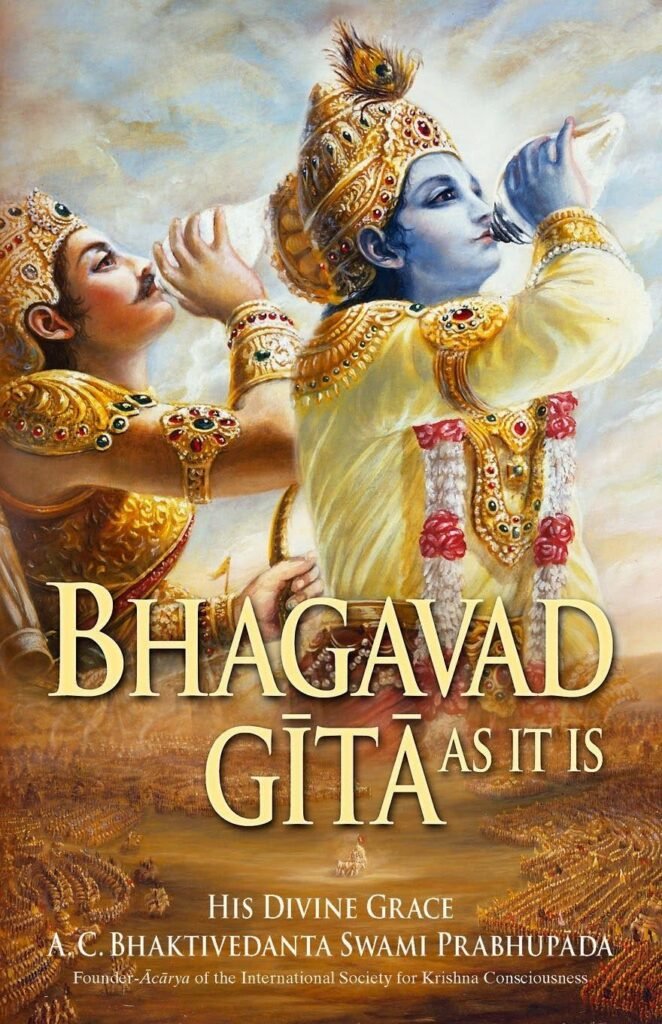
Bhagavad Gita 13.11
मयि चानन्ययोगेन भक्ितरव्यभिचारिणी।विविक्तदेशसेवित्वमरतिर्जनसंसदि।।13.11।।
mayi chānanya-yogena bhaktir avyabhichāriṇī vivikta-deśha-sevitvam aratir jana-sansadi
mayi—toward me; cha—also; ananya-yogena—exclusively united; bhaktiḥ—devotion; avyabhichāriṇī—constant; vivikta—solitary; deśha—places; sevitvam—inclination for; aratiḥ—aversion; jana-sansadi—for mundane society;
Translation
Unswerving devotion to Me through the Yoga of non-separation, resorting to solitary places, and a distaste for the company of people.
Commentary
13.11 मयि in Me? च and? अनन्ययोगेन by the Yoga of nonseparation? भक्तिः devotion? अव्यभिचारिणी unswerving? विविक्तदेशसेवित्वम् resort to solitary places? अरतिः distaste? जनसंसदि in the society of men.Commentary The man of wisdom is firmly convinced that there is nothing higher than Me and that I am the sole refuge. He has unflinching devotion to Me through Yoga without any thought,for other objects.
His mind has merged or entered into Me. Just as a river? when it merges itself in the ocean becomes completely one with it? even so he? being united with Me? worships only Me. This is Ananya Yoga or Aprithak Samadhi (Yoga of nonseparation or the superconscious state in which the devotee feels that he is nondistinct from God). Such devotion is a means of attaining knowledge. Such a devotee will never give up his devotion and worship even when he is under great trials and adversities.Viviktadesasevitvam He lives on the banks of sacred rivers? in caves? in the mountains? on the shores of seas or lakes and in beautiful solitary gardens where there is no fear of serpents? tigers or thieves. In solitary places the mind is ite calm. There are no disturbing elements that can distract ones attention.
You can have uninterrupted meditation on the Self and can enter into Samadhi ickly.Society of men Distaste for the society of worldlyminded people? not of the wise? pure and holy. Satsanga or association with the wise is a means to the attainment of the knowledge of the Self.
Bhagavad Gita 13.12
अध्यात्मज्ञाननित्यत्वं तत्त्वज्ञानार्थदर्शनम्।एतज्ज्ञानमिति प्रोक्तमज्ञानं यदतोन्यथा।।13.12।।
adhyātma-jñāna-nityatvaṁ tattva-jñānārtha-darśhanam etaj jñānam iti proktam ajñānaṁ yad ato ’nyathā
adhyātma—spiritual; jñāna—knowledge; nityatvam—constancy; tattva-jñāna—knowledge of spiritual principles; artha—for; darśhanam—philosophy; etat—all this; jñānam—knowledge; iti—thus; proktam—declared; ajñānam—ignorance; yat—what; ataḥ—to this; anyathā—contrary
Translation
Constancy in Self-knowledge, the perception of the end of true knowledge—this is declared to be knowledge, and what is opposed to it is ignorance.
Commentary
13.12 अध्यात्मज्ञाननित्यत्वम् constancy in Selfknowledge? तत्त्वज्ञानार्थदर्शनम् perception of the end of true knowledge? एतत् this? ज्ञानम् knowledge? इति thus? प्रोक्तम् declared? अज्ञानम् ignorance? यत् which? अतः from it? अन्यथा opposed.Commentary The liberated sage has constant awareness of the Self. He knows that knowledge of the Self alone is permanent and all other learning relating to this world is ignorance. He knows that the knowledge which leads to the realisation of the Self is the only truth.These attributes beginning with humility are declared to be knowledge? because they are conducive to knowledge they are the means to knowledge. They are secondary or auxiliary causes of knowledge. The fruit of this knowledge of the Self is deliverance from the round of births and deaths.
The spiritual aspirant should always keep the end of knowledge in view. Only then will he attempt to develop the various virtues which are conducive to the attainment of knowledge of the Self. What is opposed to knowledge? viz.? lust? anger? greed? pride? hypocrisy? attachment? cunningness? diplomacy? injuring others? is ignorance. These evil traits which are the products of ignorance bind a man to Samsara.
If you wish to attain the knowledge of the Self you will have to eradicate these evil traits which stand as stumbling blocks on the path of salvation. If you cultivate the opposite virtues? the evil traits will die by themselves just as the plants which are deprived of water in a garden die by themselves. It is difficult to eradicate the evil traits by fighting against them.
Bhagavad Gita 13.13
ज्ञेयं यत्तत्प्रवक्ष्यामि यज्ज्ञात्वाऽमृतमश्नुते।अनादिमत्परं ब्रह्म न सत्तन्नासदुच्यते।।13.13।।
jñeyaṁ yat tat pravakṣhyāmi yaj jñātvāmṛitam aśhnute anādi mat-paraṁ brahma na sat tan nāsad uchyate
jñeyam—ought to be known; yat—which; tat—that; pravakṣhyāmi—I shall now reveal; yat—which; jñātvā—knowing; amṛitam—immortality; aśhnute—one achieves; anādi—beginningless; mat-param—subordinate to me; brahma—Brahman; na—not; sat—existent; tat—that; na—not; asat—non-existent; uchyate—is called
Translation
I will declare that which is to be known, knowing which one attains immortality; the beginningless Supreme Brahman, which is neither being nor non-being.
Commentary
13.13 ज्ञेयम् has to be known? यत् which? तत् that? प्रवक्ष्यामि (I) will declare? यत् which? ज्ञात्वा knowing? अमृतम् immortality? अश्नुते (one) attains to? अनादिमत् the beginningless? परम् supreme? ब्रह्म Brahman? न not? सत् being? तत् that? न not? असत् nonbeing? उच्यते is called.Commentary The Lord praises that which ought to be known (Para Brahman) in order to create in Arjuna (or any hearer) an intense desire to know It.Brahman cannot be expressed in words like being or nonbeing? because Brahman does not belong to any class or genus like a Brahmana? cow or horse. It has no ality like whiteness? blackness? etc. It has no relation or connection with anything else? because It is one without a second. It is no object of any sense. It is beyond the reach of the mind and the senses. It is actionless. It is the great transcendental and unmanifested Absolute. It is always the witnessing subject in all objects.The Vedas emphatically declare that Brahman is without attributes? activity? attachment or parts.In chapter IX. 19 it was stated that He is the being and also the nonbeing. It is now stated that He is neither being nor nonbeing. This would seem to the readers to be a contradiction in terms but it is not so. Though the manifest (perishable) and the unmanifest (imperishable) universe are both forms of Brahman? He is beyond both these. (Cf.VII.2XV.16?17and18)
Bhagavad Gita 13.14
सर्वतः पाणिपादं तत्सर्वतोऽक्षिशिरोमुखम्।सर्वतः श्रुतिमल्लोके सर्वमावृत्य तिष्ठति।।13.14।।
sarvataḥ pāṇi-pādaṁ tat sarvato ’kṣhi-śhiro-mukham sarvataḥ śhrutimal loke sarvam āvṛitya tiṣhṭhati
sarvataḥ—everywhere; pāṇi—hands; pādam—feet; tat—that; sarvataḥ—everywhere; akṣhi—eyes; śhiraḥ—heads; mukham—faces; sarvataḥ—everywhere; śhruti-mat—having ears; loke—in the universe; sarvam—everything; āvṛitya—pervades; tiṣhṭhati—exists
Translation
With hands and feet everywhere, with eyes, heads, and mouths everywhere, with ears everywhere, He exists in the worlds, enveloping all.
Commentary
13.14 सर्वतः everywhere? पाणिपादम् with hands and feet? तत् that? सर्वतः everywhere? अक्षिशिरोमुखम् with eyes? heads and mouths? सर्वतः everywhere? श्रुतिमत् with ears? लोके in the world? सर्वम् all? आवृत्य having enveloped? तिष्ठति exists.Commentary He (the knower of the field or Para Brahman) pervades everything in this world. He fills and surrounds this world with Himself. He abides in the universe enveloping everything.In the previous verse it is said that the Brahman Which is to be known is neither being nor nonbeing. One may think that It is nonentity or void or nothing. In order to remove this misapprehension? the Lord says in this verse that the knowable has hands and feet everywhere? etc. It directs the mind and the senses to do their proper functions. This is only the manifest aspect of Saguna Brahman (Brahman with attributes).Just as the enginedriver drives the engine? so also the knowable or the knower of the field drieves the bodyengine. It is the Inner Ruler. It is the innermost Self. It is the support? substratum or basis for this world? body? mind? lifeforce and the senses. The existence of Brahman is determined or ascertained or indicated by the existence of the limiting adjuncts? viz.? body? mind and senses? because there must be selfconsciousness behind their activities. How can you call It nonexistence thenJust as the rope is not affected by the alities or the defects of the illusory superimposed snake? so also Para Brahman (the knower of the field) is not affected by the superimposed world? body? senses? mind and the lifeforce. There is only one common consciousness is eternal? selfluminous and allpervading. That common consciousness is Para Brahman.The body? mind? senses and the lifeforce are by nature insentient. But they are moved by Brahman to action. They act on account of the mere presence of Brahman or the knower of the field. (The limiting adjuncts are illusory.) Hence they put on the semblance of consciousness? just as the iron piece puts on the semblance of a magnet when it is in the presence of a magnet.The whole world is superimposed on Brahman like the snake on the rope. This is called Adhyaropa. It is sublated by the method (Yukti) of Apavada (negation or denial).This verse is taken from the Svetasvataropanishad 3.16.
Bhagavad Gita 13.15
सर्वेन्द्रियगुणाभासं सर्वेन्द्रियविवर्जितम्।असक्तं सर्वभृच्चैव निर्गुणं गुणभोक्तृ च।।13.15।।
sarvendriya-guṇābhāsaṁ sarvendriya-vivarjitam asaktaṁ sarva-bhṛich chaiva nirguṇaṁ guṇa-bhoktṛi cha
sarva—all; indriya—senses; guṇa—sense-objects; ābhāsam—the perciever; sarva—all; indriya—senses; vivarjitam—devoid of; asaktam—unattached; sarva-bhṛit—the sustainer of all; cha—yet; eva—indeed; nirguṇam—beyond the three modes of material nature; guṇa-bhoktṛi—the enjoyer of the three modes of material nature; cha—although
Translation
Shining by the functions of all the senses, yet without being attached to them; unattached, yet supporting all; devoid of qualities, yet the experiencer of them.
Commentary
13.15 सर्वेन्द्रियगुणाभासम् shining by the functions of all senses? सर्वेन्द्रयविवर्जितम् (yet) without the senses? असक्तम् unattached? सर्वभृत् (yet) supporting all? च and? एव even? निर्गुणम् devoid of alities? गुणभोक्तृ (yet) experiencer of the alities? च and.Commentary Brahman sees without eyes? hears without ears? smells without nose? eats without mouth? feels without skin? grasps without hands? walks without feet. He is the unseen seer? the unheard hearer? the unthought thinker. Other than Him there is no seer? no hearer? no thinker. He is the Self? the Inner Ruler? the Immortal. (Brihadaranyaka Upanishad III.7.23) He is free from the,alities of Nature and yet He is the enjoyer of the alities.All the senses The five organs of knowledge and the five organs of action? the inner senses? mind and intellect come under the term all the senses. The organs of action and those of knowledge perform their functions in conjunction with the mind and the intellect. They cannot function independently. Therefore? the mind and the intellect are included in the term all the senses.Brahman is transcendental and unmanifest? but It manifests Itself through the limiting adjuncts of the extrnal and the internal senses. As It is destitute of the senses It is unattached and yet It supports all. It is the support or substratum of everything. It is destitute of the alities of Nature and yet It is the enjoyer of those alities. Brahman is really mysterious.This verse is taken from the Svetasvataropanishad 3.17.
Bhagavad Gita 13.16
बहिरन्तश्च भूतानामचरं चरमेव च।सूक्ष्मत्वात्तदविज्ञेयं दूरस्थं चान्तिके च तत्।।13.16।।
bahir antaśh cha bhūtānām acharaṁ charam eva cha sūkṣhmatvāt tad avijñeyaṁ dūra-sthaṁ chāntike cha tat
bahiḥ—outside; antaḥ—inside; cha—and; bhūtānām—all living beings; acharam—not moving; charam—moving; eva—indeed; cha—and; sūkṣhmatvāt—due to subtlety; tat—he; avijñeyam—incomprehensible; dūra-stham—very far away; cha—and; antike—very near; cha—also; tat—he
Translation
It is within and without all beings, both the unmoving and the moving; It is subtle and unknowable, and It is near and far away.
Commentary
13.16 बहिः without? अन्तः within? च and? भूतानाम् of (all) beings? अचरम् the unmoving? चरम् the moving? एव also? च and? सूक्ष्मत्वात् because of Its subtlety? तत् That? अविज्ञेयम् unknowable? दूरस्थम् is far? च and? अन्तिके near? च and? तत् That.Commentary Brahman is subtle like the ether. It is incomprehensible to the unillumined on account of Its extreme subtlety. It is unknowable to the man who is not endowed with the four means of salvation.Brahman is known or realised by the wise. It is realised by the first class aspirant who is eipped with these means. It is near to the wise man or the illumined because It is his very Self. It is very far to the ignorant man who is drowned in worldliness or sensual pleasures. It is not attainable by the ignorant or unenlightened even in millions of years.Near and far away This expression is found in the Isavasya Upanishad (5) and the Mundaka Upanishad (3.17).
Bhagavad Gita 13.17
अविभक्तं च भूतेषु विभक्तमिव च स्थितम्।भूतभर्तृ च तज्ज्ञेयं ग्रसिष्णु प्रभविष्णु च।।13.17।।
avibhaktaṁ cha bhūteṣhu vibhaktam iva cha sthitam bhūta-bhartṛi cha taj jñeyaṁ grasiṣhṇu prabhaviṣhṇu cha
avibhaktam—indivisible; cha—although; bhūteṣhu—amongst living beings; vibhaktam—divided; iva—apparently; cha—yet; sthitam—situated; bhūta-bhartṛi—the sustainer of all beings; cha—also; tat—that; jñeyam—to be known; grasiṣhṇu—the annihilator; prabhaviṣhṇu—the creator; cha—and
Translation
Undivided yet, It exists as if divided in beings; It is to be known as the supporter of beings; It devours and It generates.
Commentary
13.17 अविभक्तम् undivided? च and? भूतेषु in beings? विभक्तम् divided? इव as if? च and? स्थितम् existing? भूतभर्तृ the supporter of beings? च and? तत् That ज्ञेयम् to be known? ग्रसिष्णु devouring? प्रभविष्णु generating? च and.Commentary Brahman must be regarded as That which supports? swallows up and also creates all beings? in the three forms of Brahma who creates the world of names anf forms? Vishnu who preserves or sustains? and Rudra who destroys. It is undivided in the various bodies. It is like ether. It is allpervding like space (Akasa). It is indivisible and the One? but It seems to divide Itself in forms and appears as all the separate existing things and beings. It is essentially unbroken. Yet? It is? as it were? divided among all beings.It devours this world during the cosmic dissolution. It generates it at the time of the origin of the next age. It supports all beings during the period of sustenance of this world.Just as fire is hidden in the wood? so also Brahman is hidden in all bodies. Just as the one space appears to be different through the limiting adjuncts (pot? house? etc.) so also the one indivisible Brahman appears to be different through the limiting adjuncts (the body? etc.). (Cf.XVIII.20)An objector says The knowable Brahman? the Knower of the field? is allpervading. It exists everywhere and yet It is not perceived. Therefore It must be of the nature of darkness or Tamas.The answer is No. It cannot be.What? then It is the Light of Lights.

Bhagavad Gita 13.18
ज्योतिषामपि तज्ज्योतिस्तमसः परमुच्यते।ज्ञानं ज्ञेयं ज्ञानगम्यं हृदि सर्वस्य विष्ठितम्।।13.18।।
jyotiṣhām api taj jyotis tamasaḥ param uchyate jñānaṁ jñeyaṁ jñāna-gamyaṁ hṛidi sarvasya viṣhṭhitam
jyotiṣhām—in all luminarie; api—and; tat—that; jyotiḥ—the source of light; tamasaḥ—the darkness; param—beyond; uchyate—is said (to be); jñānam—knowledge; jñeyam—the object of knowledge; jñāna-gamyam—the goal of knowledge; hṛidi—within the heart; sarvasya—of all living beings; viṣhṭhitam—dwells
Translation
That Light of all lights is said to be beyond darkness: knowledge, the knowable, and the goal of knowledge, seated in the hearts of all.
Commentary
13.18 ज्योतिषाम् of lights? अपि even? तत् That? ज्योतिः Light? तमसः from darkness? परम् beyond? उच्यते is said (to be)? ज्ञानम् knowledge? ज्ञेयम् that which is to be known? ज्ञानगम्यम् attainable by knowledge? हृदि in the heart? सर्वस्य of all? विष्ठितम् seated.Commentary The Supreme Self illumines the intellect? the mind? the sun? moon? stars? fire and lightning. It is selfluminous? The sun does not shine there? nor do the moon and the stars? nor do these lightnings shine and much less this fire. When It shines? everything shines after It all these shine by Its Light. (Kathopanishad 5.15 also Svetasvataropanishad 6.14)Knowledge Such as humility. (Cf.XIII.7to11)The knowable As described in verses 12 to 7.The goal of knowledge? i.e.? capable of being understood by wisdom.These three are installed in the heart (Buddhi) of every living being. Though the light of the sun shines in all objects? yet the suns light shines more brilliantly in all bright and clean objects such as a mirror. Even so? though Brahman is present in all objects? the intellect shines with special effulgence received from Brahman. (Cf.X.20XIII.3XVIII.61)
Bhagavad Gita 13.19
इति क्षेत्रं तथा ज्ञानं ज्ञेयं चोक्तं समासतः।मद्भक्त एतद्विज्ञाय मद्भावायोपपद्यते।।13.19।।
iti kṣhetraṁ tathā jñānaṁ jñeyaṁ choktaṁ samāsataḥ mad-bhakta etad vijñāya mad-bhāvāyopapadyate
iti—thus; kṣhetram—the nature of the field; tathā—and; jñānam—the meaning of knowledge; jñeyam—the object of knowledge; cha—and; uktam—revealed; samāsataḥ—in summary; mat-bhaktaḥ—my devotee; etat—this; vijñāya—having understood; mat-bhāvāya—my divine nature; upapadyate—attain
Translation
Thus, the field, as well as knowledge and the knowable, have been briefly stated. My devotee, knowing this, enters into My being.
Commentary
13.19 इति thus? क्षेत्रम् the field? तथा as well as? ज्ञानम् knowledge? ज्ञेयम् the knowable? च and? उक्तम् have been stated? समासतः briefly? मद्भक्तः My devotee? एतत् this? विज्ञाय knowing? मद्भावाय to My being? उपपद्यते enters.Commentary He whohas controlled his mind and organs? who has the knowledge of the field and the knowable? and who fixes his mind on Me becomes one with Me.Thus the field described above (beginning with the great elements and ending with firmness? verses 5 and 6)? knowledge described above (beginning with humility and ending with perception of the end of true knowledge in verses 7 to 11) and the knowable described in verses 12 to 17 — these have briefly been stated.He who has singleminded devotion unto Me? who takes Me (Vaasudeva? the Supreme Lord? the omniscient? and the supreme Guru) as the Self of everything? he who thinks and feels that all that he sees? hears and touches is nothing but the Lord and he who has the right knowledge described above enters into My Being or attains release from birth and death.
Bhagavad Gita 13.20
प्रकृतिं पुरुषं चैव विद्ध्यनादी उभावपि।विकारांश्च गुणांश्चैव विद्धि प्रकृतिसंभवान्।।13.20।।
prakṛitiṁ puruṣhaṁ chaiva viddhy anādī ubhāv api vikārānśh cha guṇānśh chaiva viddhi prakṛiti-sambhavān
prakṛitim—material nature; puruṣham—the individual souls; cha—and; eva—indeed; viddhi—know; anādī—beginningless; ubhau—both; api—and; vikārān—transformations (of the body); cha—also; guṇān—the three modes of nature; cha—and; eva—indeed; viddhi—know; prakṛiti—material energy; sambhavān—produced by
Translation
Know that Nature (matter) and the Spirit are both beginningless, and know also that all modifications and qualities are born from Nature.
Commentary
13.20 प्रकृतिम् matter? पुरुषम् spirit? च and? एव even? विद्धि know? अनादी beginningless? उभौ both? अपि also? विकारान् modifications? च and? गुणान् alities? च and? एव even? विद्धि know? प्रकृतिसंभवान् born of Prakriti.Commentary Steps are necessary to reach the top floor of a building. Even so? steps are necessary to reach the summit of the knowledge of the Self. That is the reason why Lord Krishna took Arjuna to the summit of knowledge step by step. He first taught Arjuna the nature of the field? then knowledge? ignorance or nonwisdom? and ultimately the knowable. When a child is to be fed,the intelligent mother divides the food into small portions and feeds the child little by little. Even so Lord Krishna fed His spiritual child Arjuna with the spiritual food little by little.Lord Krishna says O Arjuna I will give you the same teaching in another form by the description of the Spirit and Nature.Till now the Lord expounded the knowledge of the field and the Self in accordance with the philosophy of the Upanishads. Now He explains the same knowledge in accordance with the Sankhya philosophy? but without accepting its dual nature in the form of discrimination between the Spirit and Nature.Vikaras.
Modifications from the MahatTattva or intellect down to the physical body the twentyfour principles of the Sankhyas. The Self within is changeless. All changes take place in Nature. Mulaprakriti (the Primordial Nature? the Unmanifested) becomes modified into Mahat? egoism? mind? the great elements and other minor modifications.Just as coolness and ice? the day and the night? are inseparable? so also matter and Spirit are inseparable. The three alities Sattva? Rajas and Tamas are born of Nature (matter). All actions proceed from the mind? the lifeforce? the senses and the physical body.According to the Sankhya philosophy? Prakriti and Purusha are not only eternal and beginningless but also independent of each other and selfcreated. According to Vedanta philosophy? Prakriti.
Brahman and is? therefore? neither selfcreated nor independent. Isvara has Maya under His perfect control. Maya is His causal body. Maya is His illusory power.Matter and Spirit are the Natures of Isvara. Know that these two are beginningless. That which has no beginning is Anadi. As Isvara is eternal? His two Natures also should be eternal. (This is according to the Sankhyas.)Isvara possesses these two Natures (superior and inferior) by which He causes the creation? preservation and destruction of the universe. Therefore He has the Lordship and rules over the universe. The two Natures have no beginning. Therefore they are the cause of Samsara.The inferior Nature (Apara Prakriti) which consists of the eightfold division of Nature referred to in chapter VII? verse 4? is the Prakriti of chapter XIII? verse 19. The superior Nature (Para Prakriti) referred to in chapter VII? verse 5? is the Purusha of chapter XIII? verse 19. Purusha here means Jiva (the individual soul).Even a child smiles and experiences exhilaration? grief? fear? anger? pleasure and pain. Who taught it The impressions of the virtuous and vicious actions of this birth cannot be the cause of these. The impressions of the previous birth alone are the cause of all these. They (the impressions) must have a support. From this we can clearly infer the existence of the individual soul in the previous birth and that the individual soul is beginningless. If you do not accept that the individual soul is beginningless? the two defects of Kritanasa (nonfruition of actions performed) and Akritabhyagama (causeless effect) will creep in. Pleasure and pain which are the fruits of virtuous and vicious actions done previously will pass away without being experienced. This is the defect of Kritanasa. So also? one will have to enjoy pleasure and pain? the fruits of good and bad actions which were not done by him previously. This is the defect of Akritabhyagama. In order to get rid of these two defects we will have to accept that the individual soul is beginningless. The scriptures,also emphatically declare that the soul is beginningless.
Bhagavad Gita 13.21
कार्यकारणकर्तृत्वे हेतुः प्रकृतिरुच्यते।पुरुषः सुखदुःखानां भोक्तृत्वे हेतुरुच्यते।।13.21।।
kārya-kāraṇa-kartṛitve hetuḥ prakṛitir uchyate puruṣhaḥ sukha-duḥkhānāṁ bhoktṛitve hetur uchyate
kārya—effect; kāraṇa—cause; kartṛitve—in the matter of creation; hetuḥ—the medium; prakṛitiḥ—the material energy; uchyate—is said to be; puruṣhaḥ—the individual soul; sukha-duḥkhānām—of happiness and distress; bhoktṛitve—in experiencing; hetuḥ—is responsible; uchyate—is said to be
Translation
In the production of the effect and the cause, Nature (matter) is said to be the cause; in the experience of pleasure and pain, the soul is said to be the one responsible.
Commentary
13.21 कार्यकारणकर्तृत्वे in the production of the effect? and the cause? हेतुः the cause? प्रकृतिः Prakriti? उच्यते is said (to be)? पुरुषः Purusha? सुखदुःखानाम् of pleasure and pain? भोक्तृत्वे in the experience? हेतुः the cause? उच्यते is said (to be).Commentary Pleasure and pain are the fruits of virtuous and vicious actions. The force of desire acts on the mind and the mind impels the senses to act to get the objects of desire. Good and evil actions proceed from Nature and lead to happiness or misery. Evil actions produce misery and sorrow. Virtuous actions cause happiness and joy. The soul is the enjoyer. The wife works and prepares nice? palatable dishes the huand silently enjoys the fruits of her labour. He sits ietly and eats them to his hearts content. Even so Nature works and the soul experiences the fruits of Her labour? viz.? pleasure and pain.When harmony predominates? virtuous actions are performed. When there is a preponderance of Rajas? both virtuous and vicious actions are performed. When Tamas predominates? sinful? unlawful and unrighteous actions are done.In the place of Kaarana (कारण) which means cause? some read Karana (करण) which means instrument such as the five organs of knowledge? five organs of action? mind? intellect and egoism (thirteen principles located in the body).Karya The effect? viz.? the physical body. The five elements which form the body and the five senses? and which form the senseobjects which are born of Nature come under the term effect. All alities? such as pleasure and pain and delusion which are born of Nature? come under the term instruments because these alities reside in the instruments? the senses.In the production of the body? the senses and their sensations Nature is said to be the cause. Thus Nature is the cause of Samsara. Sugarcane is the cause. Sugarcane juice? sugar and sugarcandy are the effects or modifications of sugarcane. Milk is the cause. Curd? butter and ghee (meleted butter) are the modifications of milk.
Whatever is a modification of something is its effect? and that from which the modifications come is their cause. Nature is the source or cause of all modifications. She generates everything. The ten organs? mind and the five objects of the senses are the sixteen modifications or effects.Mahat (intellect) is born of Mulaprakriti. From Mahat Ahamkara (egoism) is born. Mahat is the effect of Mulaprakriti and the cause of Ahamkara. Therefore Mahat is called PrakritiVikriti. Mahat? Ahamkara and the five Tanmatras (rootelements of matter) are the seven PrakritiVikriti. Each of these is a modification of its predecessor and is in turn the cause of its successor. The five rootelements generate the five gross elements. They are the subtle elements. These seven are both Nature and modification (Prakriti and Vikriti)?cause and effect? and are included under the term cause.The functions of the body? senses? lifeforce? mind and intellect are superimposed on the pure Self. So the ignorant man says I am black I am fat I am hungry I am angry I am deaf I am blind I am the son of so and so? I know? I am the doer? I am the enjoyer? etc.The intellect is very subtle. It is in close contact with the most subtle Self. The Consciousness of the Self is reflected in the intellect (Chidabhasa) and so the intellect which has the semblance of,the Consciousness feels I am pure consciousness or Chaitanya. I experience pleasure and pain. The attributes of the pure Self are superimposed on the intellect. There is mutual superimposition between the intellect and the Self? Nature and Spirit. This is the cause of Samsara.Purusha? Jiva? Kshetrajna and Bhokta are all synonymous terms. Purusha here referred to is not the Supreme Self. He is the conditioned soul? the soul subject to transmigration who experiences pleasure and pain. The Self or the Absolute is ever free from Samsara and is unchanging.Prakriti and Purusha are the cause of Samsara. Nature generates the body? lifeforce? mind? intellect and the senses. The soul experiences pleasure and pain. Samsara is the experience of pleasure and pain. The soul is the Samsarin. He is the experiencer of pleasure and pain. (Cf.XV.9)
Bhagavad Gita 13.22
पुरुषः प्रकृतिस्थो हि भुङ्क्ते प्रकृतिजान्गुणान्।कारणं गुणसङ्गोऽस्य सदसद्योनिजन्मसु।।13.22।।
puruṣhaḥ prakṛiti-stho hi bhuṅkte prakṛiti-jān guṇān kāraṇaṁ guṇa-saṅgo ’sya sad-asad-yoni-janmasu
puruṣhaḥ—the individual soul; prakṛiti-sthaḥ—seated in the material energy; hi—indeed; bhuṅkte—desires to enjoy; prakṛiti-jān—produced by the material energy; guṇān—the three modes of nature; kāraṇam—the cause; guṇa-saṅgaḥ—the attachment (to three guṇas); asya—of its; sat-asat-yoni—in superior and inferior wombs; janmasu—of birth
Translation
The soul seated in Nature experiences the qualities born of Nature; attachment to the qualities is the cause of its birth in good and evil wombs.
Commentary
13.22 पुरुषः Purusha? प्रकृतिस्थः seated in Prakriti? हि indeed? भुङक्ते enjoys? प्रकृतिजान् born of Prakriti? गुणान् alities? कारणम् the cause? गुणसङ्गः attachment to the Gunas? अस्य of his? सदसद्योनिजन्मसु of birth in good and evil wombs.Commentary The soul residing in Nature and identifying itself with the body and the senses which are modifications of Nature acts through the alities of Nature and experiences pleasure and pain and delusion. It thinks? I am happy? I am miserable? I am deluded? I am wise. When it thus identifies itself with the alities? it assumes individuality and takes birth in pure and impure wombs.The soul (Jivatma) enjoys the sensual objects in conjunction with the body? mind and the senses and thus becomes the enjoyer. Brahman is the silent witness and nonenjoyer. The souls attachment to the alities of pleasure? pain and delusion is the chief cause of its birth. If you add the word Samsara to the second half of the verse? it will mean Attachment to the alities is the cause of Samsara through births in good and evil wombs.Good wombs (Sat Yoni) are those of the gods and the like evil wombs (Asat Yoni) are those of lower animals. The human womb is partly good and partly evil on account of mixed Karmas.Purushah prakritisthah Purusha (the soul) seated in Prakriti (Nature). This is Avidya (ignorance). Attachment to the alities of Nature is Kama (desire). Avidya and Kama are the cause of Samsara.Jnana (wisdom) and Vairagya (dispassion) will destroy ignorance and desire. (Cf.XIV.5XV.7)
Bhagavad Gita 13.23
उपद्रष्टाऽनुमन्ता च भर्ता भोक्ता महेश्वरः।परमात्मेति चाप्युक्तो देहेऽस्मिन्पुरुषः परः।।13.23।।
upadraṣhṭānumantā cha bhartā bhoktā maheśhvaraḥ paramātmeti chāpy ukto dehe ’smin puruṣhaḥ paraḥ
upadraṣhṭā—the witness; anumantā—the permitter; cha—and; bhartā—the supporter; bhoktā—the transcendental enjoyer; mahā-īśhvaraḥ—the ultimate controller; parama-ātmā—Superme Soul; iti—that; cha api—and also; uktaḥ—is said; dehe—within the body; asmin—this; puruṣhaḥ paraḥ—the Supreme Lord
Translation
The Supreme Soul in this body is also called the observer, the permitter, the sustainer, the enjoyer, the great Lord, and the Supreme Self.
Commentary
13.23 उपद्रष्टा the spectator? अनुमन्ता the permitter? च and? भर्ता the supporter? भोक्ता the enjoyer? महेश्वरः the great Lord? परमात्मा the Supreme Self? इति thus? च and? अपि also? उक्तः is called? देहे in the body? अस्मिन् (in) this? पुरुषः Purusha? परः Supreme.Commentary Upadrashta A spectator? a witness? a lookeron? a bystander? one who sits near.
When the priests and the sacrificer perform the sacrificial rites? an expert who has good experience in sacrifical matters sits by their side. He does not take any part at all in the sacrifice. He sits as a silent witness. He guides them. He points out their defects and corrects them. Even so the Supreme Self does not act. It does not take any part in the activities of the body? the mind and the senses. It is entirely distinct from them.
It is a silent witness of their activities. It sits near Nature and silently watches Her actions.It may be explained in another way. The body? the eyes? the mind? the intellect and the Self are the,seers. Of these the body is the most external seer the Self is the most internal and nearest seer. Beyond the Self there is no other internal seer.Anumanta Permitter. The Supreme Self gives consent. It expresses Its approval or satisfaction regarding the actions done by the senses? the mind and the intellect. The King consents and says Yes. The Prime Minister and the other officers carry out his orders. Even so the Supreme Self consents or gives permission the body? the mind? the intellect? and the senses perform their respective functions. Or? though It Itself does not work while the senses? the mind and the intellect work? It appears to be engaged in action? it seems to cooperate with them. As It is an onlooker or mere witness? It never stands in the way of the activities of the body? the mind? the intellect and the senses.Bharta Supporter. Just as the huand is the supporter of his wife? so also the Self is the supporter of this body? mind? intellect? lifeforce and the senses. It is different from them? just as the father who supports the children is different from them.Bhokta Enjoyer the Self? of the nature of eternal intelligence. Just as heat is the inherent nature of fire? so also eternal intelligence is the inherent nature of the Self. All the states of the mind such as pleasure? pain and delusion are permeated and illumined by the intelligent Self. Just as Govindan who takes the food is different from the foo? so also the Self is different from the intellect? the mind and the senses.Mahesvarah The great Lord. As He is the soul or essence of everything and as He is independent of all? He is Mahesvara. The sky is very big. Mahesva is bigger than even the sky? and so He is called Mahesvara. Just as the king is different from his subjects? so also the Self is different from Nature and the effects or modifications of Nature.Paramatma The Supreme Self. It is supreme because It is superior to all those things? from the Unmanifested to the physical body? which are mistaken for the Self on account of ignorance. Just as an iron piece moves in the presence of a magnet so also the mind and the intellect which are insentient move and function in the presence of the Supreme Self. Just as the moon borrows its light from the sun? so also the mind and the intellect borrow their light from the Supreme Self. The Supreme Self is selfluminous. Mind and intellect have no selfluminosity. In the Vedas also He is called the Supreme Self. Lord Krishna says in verse 17 of the fifteenth chapter But distinct is the Highest Purusha spoken of as the Supreme Self.Do thou also know Me as the knower of the field in all the fields? has been described in detial and the subject is concluded in this verse.
Bhagavad Gita 13.24
य एवं वेत्ति पुरुषं प्रकृतिं च गुणैःसह।सर्वथा वर्तमानोऽपि न स भूयोऽभिजायते।।13.24।।
ya evaṁ vetti puruṣhaṁ prakṛitiṁ cha guṇaiḥ saha sarvathā vartamāno ’pi na sa bhūyo ’bhijāyate
yaḥ—who; evam—thus; vetti—understand; puruṣham—Puruṣh; prakṛitim—the material nature; cha—and; guṇaiḥ—the three modes of nature; saha—with; sarvathā—in every way; vartamānaḥ—situated; api—although; na—not; saḥ—they; bhūyaḥ—again; abhijāyate—take birth
Translation
He who thus knows the Spirit and Matter together with their qualities, in whatever condition he may be, he is not reborn.
Commentary
13.24 यः who? एवम् thus? वेत्ति knows? पुरुषम् Purusha? प्रकृतिम् Prakriti? च and? गुणैः alities? सह with? सर्वथा in all ways? वर्तमानः living? अपि also? न not? सः he? भूयः again? अभिजायते is born.Commentary One who knows the Soul and Nature with its alities? whatever his conduct may be? frees himself from the cycle of births and deaths. Such is the advantage he gains from the discriminative knowledge of Spirit and Matter. He knows that he is eternal and changeless and that all changes are due to the modifications of Nature on account of its alities. The self through ignorance identifies itself with the body and suffers rirth.In whatsoever condition he may be? whether he is engaged in prescribed or forbidden acts (like Indra who killed the Purohita Visvarupa and many Sannyasins)? he is not born again? because the,actions (which are the seeds of rirth)? of one who knows the Spirit and Matter? who has gained the knowledge of the Self? are burnt by the fire of that knowledge. Just as the seeds that are fried in fire do not sprout again? so also the actions burnt in the fire of knowledge cannot produce new bodies or further births. In his case they are Karmabhasa (mere semblance of Karma).
They are not effective causes and cannot produce further births. A burnt cloth cannot serve the purpose of the cloth.Those actions which are done with egoism and desire (expectation of fruits) will produce fruits or results. In the case of a wise man? the seeds of evil? viz.? ignorance? egoism? attachment? etc.? are burnt by the fire of knowledge. Therefore he cannot have rirths.The Karmas (Prarabdha)
which have already started their operation by producing this present birth do not perish? notwithstanding the dawn of the knowledge of the Self. When an arrow is once sent out from a bow at a mark? it pierces the mark and continues to act till it falls to the ground when the full force with which it was dischared is exhausted. Even so the Prarabdha Karma which has given rise to the body continues to act till the inherent force is fully exhausted? although the sage has attained Selfrealisation through his body. But he is not in the least affected by this? because he has no identification with the body? and as he has identified himelf with Brahman or the Absolute. If a carbuncle or cancer arises in the body on account of Prarabdha Karma? he will not suffer a bit as he has risen above bodyconsciousness? and as he stands as a witness of his body. But a bystander or a spectator wrongly imagines that the liberated sage is also suffering like an ordinary worldly man. This is a serious and sad mistake. From the viewpoint of the liberated sage he has neither body nor Prarabdha Karma.An arrow that is placed ready on the bow but not discharged with force can be withdrawn. Similarly? the Karmas.
which have not begun to generate their fruits or effects can be neutralised or destroyed by the knowledge of the Self. Therefore it is proper to say that the liberated sage is not born again. He will not take another body when the body through which he attained knowledge perishes. As ignorance? the cause of this body? is destroyed by the knowledge of the Self? birth? the effect of ignorance? is also destroyed.
As one takes birth through virtuous and vicious actions? a sage will not take birth as his virtuous and visiouc actions (the whole Sanchita or accumulated Karmas of his previous births) are destroyed by the knowledge of the Self. The Karmas done by him after he has attained Selfrealisation cannot touch him at all as he has neither egoism (agency) nor desires.

Bhagavad Gita 13.25
ध्यानेनात्मनि पश्यन्ति केचिदात्मानमात्मना।अन्ये सांख्येन योगेन कर्मयोगेन चापरे।।13.25।।
dhyānenātmani paśhyanti kechid ātmānam ātmanā anye sānkhyena yogena karma-yogena chāpare
dhyānena—through meditation; ātmani—within one’s heart; paśhyanti—percieve; kechit—some; ātmānam—the Supreme soul; ātmanā—by the mind; anye—others; sānkhyena—through cultivation of knowledge; yogena—the yog system; karma-yogena—union with God with through path of action; cha—and; apare—others
Translation
Some behold the Self within themselves through meditation, others through the Yoga of knowledge, and still others through the Yoga of action.
Commentary
13.25 ध्यानेन by meditation? आत्मनि in the self? पश्यन्ति behold? केचित् some? आत्मानम् the Self? आत्मना by the self? अन्ये others? सांख्येन योगेन by the Yoga of knowledge (by the Sankhya Yoga)? कर्मयोगेन by Karma Yoga? च and? अपरे others.Commentary There are severla paths to reach the knowledge of the Self according to the nature or temperament and capacity of the individual. The first path is the Yoga of meditation taught by Maharshi Patanjali. The Raja Yogins behold the Supreme Self in the self (Buddhi) by the self (purified mind). Meditation is a continous and unbroken flow of thought of the Self like the flow of oil from one vessel to another. Through concentration hearing and the other senses are withdrawn into the mind. The senses are not allowed to run towards their respective sensual objects.
They are kept under proper check and control through the process of abstraction. Then the mind itself is made to abide in the Self through constant meditation on the Self. The mind is refined or purified by meditation. The mind that is rendered pure will naturally move towards the Self. It is not attracted by nor is it attached to the sensual objects.Sankhya Yoga is Jnana Yoga. The aspirant does Vichara (analysis? reflection) and separates himself from the three alities of Nature? the three bodies and the five sheaths and identifies himself with the witness (Self). He thinks and feels? I am distinct from the three alities. I am the silent witness. I am unattached. I am nondoer. I am nonenjoyer. I am immortal? eternal? selfexistent? selfluminous? indivisible? unborn and unchanging.
The Karma Yogi surrenders his actions and their fruits to the Lord. He has Isvarapana Buddhi (intelligence that offers everything to God). This produces purity of mind which gives rise to knowledge of the Self. Karma Yoga brings about concentration of the mind through the purification of the mind. It leads to Yoga through the purification of the mind and so it is spoken of as Yoga itself.Those who practise Sankhya Yoga are the highest class of spiritual aspirants. Those who practise the Yoga of meditation are aspirants of the middling class. Those who practise Karma Yoga are the lowest class of spiritual aspirants. The aspirants of the middling and lowest class soon become aspirants of the highest class through rigorous Sadhana or spiritual practices. (Cf.V.5VI.46)
Bhagavad Gita 13.26
अन्ये त्वेवमजानन्तः श्रुत्वाऽन्येभ्य उपासते।तेऽपि चातितरन्त्येव मृत्युं श्रुतिपरायणाः।।13.26।।
anye tv evam ajānantaḥ śhrutvānyebhya upāsate te ’pi chātitaranty eva mṛityuṁ śhruti-parāyaṇāḥ
anye—others; tu—still; evam—thus; ajānantaḥ—those who are unaware (of spiritual paths); śhrutvā—by hearing; anyebhyaḥ—from others; upāsate—begin to worship; te—they; api—also; cha—and; atitaranti—cross over; eva—even; mṛityum—death; śhruti-parāyaṇāḥ—devotion to hearing (from saints)
Translation
Others, too, who do not know thus, worship, having heard of It from others; they, too, cross beyond death, regarding what they have heard as the supreme refuge.
Commentary
13.26 अन्ये others? तु indeed? एवम् thus? अजानन्तः not knowing? श्रुत्वा having heard? अन्येभ्यः from others? उपासते worship? ते they? अपि also? च and? अतितरन्ति cross beyond? एव even? मृत्युम् death? श्रुतिपरायणाः regarding what they have heard as the Supreme refuge.Commentary The three paths? viz.? the Yoga of meditation? the Yoga of knowledge? and the Yoga of action to attain the knowledge of the Self were described in the previous verse. In this verse the Yoga of worship is described.Some who are ignorant of the methods described in the previous verse listen to the teachings of the spiritual preceptors regarding this great Truth or the Self with intense and unshakable faith? solely depending upon the authority of others instructions? and through constant remembrance and contemplation of them attain immortality. They are devoted to their preceptor. Some study the books written by realised seers? stick with great faith to the teachings contained therein and live according to them. They also overcome death. Whichever path one follows? one eventually attains the knowledge of the Self and final liberation from birth and death? — salvation (Moksha). There are several paths to suit aspirants of different temperaments and eipments.Freeing oneself from ignorance with its effects through the knowledge of the Self? is crossing the Samsara or attaining immortality or overcoming death or obtaining release or salvation.
Bhagavad Gita 13.27
यावत्सञ्जायते किञ्चित्सत्त्वं स्थावरजङ्गमम्।क्षेत्रक्षेत्रज्ञसंयोगात्तद्विद्धि भरतर्षभ।।13.27।।
yāvat sañjāyate kiñchit sattvaṁ sthāvara-jaṅgamam kṣhetra-kṣhetrajña-sanyogāt tad viddhi bharatarṣhabha
yāvat—whatever; sañjāyate—manifesting; kiñchit—anything; sattvam—being; sthāvara—unmoving; jaṅgamam—moving; kṣhetra—field of activities; kṣhetra-jña—knower of the field; sanyogāt—combination of; tat—that; viddhi—know; bharata-ṛiṣhabha—best of the Bharatas
Translation
Wherever a being is born, whether unmoving or moving, know thou, O best of the Bharatas (Arjuna), that it is from the union of the field and its knower.
Commentary
13.27 यावत् whatever? सञ्जायते is born? किञ्चित् any? सत्त्वम् being? स्थावरजङ्गमम् the unmoving and the moving? क्षेत्रक्षेत्रज्ञसंयोगात् from the union between the field and the knower of the field? तत् that? विद्धि know? भरतर्षभ O best of the Bharatas.Commentary O Arjuna? remember that whatever is born? unmoving or moving? know thou that to be done to the union between the body and the Self.
The knower of the field is like the ether without parts. Therefore? there cannot be a union of the field and the knower of the field through contact of each others parts like the contact of the drum and the stick or a rope and a vessel. There cannot be the inseparable connection between them like the connection that exists between the head and the neck? or the arm and the shoulder? because the field and its knower are not related to each other as cause and effect.Then? what sort of union is there between the field and its knower It is of the nature of mutual superimposition or illusion. This consists in confounding the one with the other as well as their attributes? like the union of a rope with a snake? and motherofpearl with silver? on account of lack of discrimination of their real nature. The attributes of the Self are transferred to the body and vice versa. The insentient body is mistaken for the sentient Self. The activities of the body or Nature are transferred to the silent? actionless Self. This sort of illusion or superimposition will disappear when one attains knowledge of the Self? when he is able to separate the field from the knower like the reed from the Munja grass? when he realises that Brahman which is free from all limiting adjuncts is his own immortal Self? and that the field is a mere appearance like the snake in the rope? silver in motherofpearl? an imaginary city in the sky? and is like an object seen in a dream or like the horses? places and forests projected by ajuggler. A sage who has the knowledge of the Self is not born again.
Bhagavad Gita 13.28
समं सर्वेषु भूतेषु तिष्ठन्तं परमेश्वरम्।विनश्यत्स्वविनश्यन्तं यः पश्यति स पश्यति।।13.28।।
samaṁ sarveṣhu bhūteṣhu tiṣhṭhantaṁ parameśhvaram vinaśhyatsv avinaśhyantaṁ yaḥ paśhyati sa paśhyati
samam—equally; sarveṣhu—in all; bhūteṣhu—beings; tiṣhṭhan-tam—accompanying; parama-īśhvaram—Supreme Soul; vinaśhyatsu—amongst the perishable; avinaśhyantam—the imperishable; yaḥ—who; paśhyati—see; saḥ—they; paśhyati—perceive
Translation
He who sees the Supreme Lord existing truly in all beings, the imperishable within the perishable, sees indeed.
Commentary
13.28 समम् eally? सर्वेषु (in) all? भूतेषु in beings? तिष्ठन्तम् existing? परमेश्वरम् the Supreme Lord? विनश्यस्तु among the perishing? अविनश्यन्तम् the unperishing? यः who? पश्यति sees? सः he? पश्यति sees.Commentary He who beholds the Supreme Lord through the inner eye of wisdom? Him Who is seated in all beings from the Creator down to the unmoving objects and Who is not destroyed even when all beings are destroyed? he is said to have realised the Self.In different kinds of fire? the heat is the same. Gold is the same in different forms of ornaments. The light from many lamps is the same. So also in all living being?s the soul is the same. The soul or the Self is uniform everywhere. The Self is the same in ants? elephants? kings? beggars? saints and rogues.The Self is indestructible all living beings are perishable. It is the Supreme Lord when compared to the body? senses? mind? intellect? the Unmanifested Nature and the individual soul.Birth is the root cause of the BhavaVikaras or the modifications? viz.? change? growth? decay and death. The other changes of state manifest themselves after the birth of the body.The Supreme Lord is one and changeless as He is birthless? decayless and deathless.
He is the one common consciousness in all beings. He sees rightly who sees the Supreme Lord as now described. He is a Jivanmukta. He has knowledge of the knower of the field or the immortal Self. He is the real seer or a liberated sage.The sage alone sees properly on account of knowledge. The whole world sees erroneously on account of ignorance. He who is suffering from defective vision beholds many moons.
He sees erroneously. But he who sees one moon only sees in the proper manner? correctly. Even so he who beholds the one immortal indivisible Self in all beings really sees the Truth. He alone sees. He who sees many distinct selves erroneously does not really see though he sees. He is like the man who beholds many moons. (Cf.VIII.20
Bhagavad Gita 13.29
समं पश्यन्हि सर्वत्र समवस्थितमीश्वरम्।न हिनस्त्यात्मनाऽऽत्मानं ततो याति परां गतिम्।।13.29।।
samaṁ paśhyan hi sarvatra samavasthitam īśhvaram na hinasty ātmanātmānaṁ tato yāti parāṁ gatim
samam—equally; paśhyan—see; hi—indeed; sarvatra—everywhere; samavasthitam—equally present; īśhvaram—God as the Supreme soul; na—do not; hinasti—degrade; ātmanā—by one’s mind; ātmānam—the self; tataḥ—thereby; yāti—reach; parām—the supreme; gatim—destination
Translation
For he who truly sees the same Lord dwelling everywhere does not destroy the Self by the self; rather, he attains the highest goal.
Commentary
13.29 समम् eally? पश्यन् seeing? हि indeed? सर्वत्र everywhere? समवस्थितम् eally dwelling? ईश्वरम् the Lord? न not? हिनस्ति destroys? आत्मना by the self? आत्मानम् the Self? ततः then? याति goes? पराम् the highest? गतिम् the goal.Commentary This is the vision of a liberated sage. The Supreme Self abides in all forms. There is nothing apart from It.An ignorant man destroyes the Self by identifying himself with the body and the modifications of the mind and by not seeing the one Self in all beings. He has a blurred vision. His mind is very gross. He cannot think of the subtle Self. He is swayed by the force of ignorance. He mistakes the impure body for the pure Self. He has false knowledge. But the sage has knowledge of the Self or true knowledge and so he beholds the one Self in all beings. An ignorant man is the slayer of his Self. He destroys this body and takes another body and so on. But he who beholds the one Self in all beings does not destroy the Self by the self. Therefore he attains the Supreme Goal? i.e.? he attains release from the round of birth and death. Knowledge of the Self leads to liberation or salvation. Knowledge of the Absolute annihilates the ignorance in toto. If the ignorance is destroyed and false knowledge is also destroyed? all evils are simultaneously destroyed.Those who have realised that unity of the Self in all these diverse forms are never caught in the meshes of birth and death. They attain the state of Turiya (the fourth state beyond waking? dreaming and deep sleep) where form and sound do not exist.The self is everybodys friend and also his enemy as well. The idea first expressed in chapter VI? verses 5 and 6 is repeated here. (Cf.XVIII.20)
Bhagavad Gita 13.30
प्रकृत्यैव च कर्माणि क्रियमाणानि सर्वशः।यः पश्यति तथाऽऽत्मानमकर्तारं स पश्यति।।13.30।।
prakṛityaiva cha karmāṇi kriyamāṇāni sarvaśhaḥ yaḥ paśhyati tathātmānam akartāraṁ sa paśhyati
prakṛityā—by material nature; eva—truly; cha—also; karmāṇi—actions; kriyamāṇāni—are performed; sarvaśhaḥ—all; yaḥ—who; paśhyati—see; tathā—also; ātmānam—(embodied) soul; akartāram—actionless; saḥ—they; paśhyati—see
Translation
He sees, who sees that all actions are performed solely by Nature and that the Self is without action.
Commentary
13.30 प्रकृत्या by Nature? एव alone? च and? कर्माणि actions? क्रियमाणानि being performed? सर्वशः all? यः who? पश्यति sees? तथा so also? आत्मानम् the Self? अकर्तारम् actionless? सः he? पश्यति sees.Commentary Nature is responsible for all activities. The Self is beyond all action. It is the silent witness only. He who experiences thus is the real seer or sage.He who knows that all actions proceeding from the five organs of knowledge? the five organs of action? the mind and the intellect are prompted by Nature and that the Self is actionless? really sees. He alone sees. He who identifies himself with the body? the mind and the senses and foolishly thinks that the Self is the actor is an ignorant man. He sees only with the physical eyes. He has no inner eye of intuition. The sky remains motionless but the clouds move across the sky. Even so the Self is actionless but Nature does everythin. The Self is destitute of any limiting adjunct. Just as there is no variety in ether? so also there is no variety in the Self. It is one homogeneous essence. It is free from any kind of characteristics. (Cf.III.27XIV.19XVIII.16)

Bhagavad Gita 13.31
यदा भूतपृथग्भावमेकस्थमनुपश्यति।तत एव च विस्तारं ब्रह्म सम्पद्यते तदा।।13.31।।
yadā bhūta-pṛithag-bhāvam eka-stham anupaśhyati tata eva cha vistāraṁ brahma sampadyate tadā
yadā—when; bhūta—living entities; pṛithak-bhāvam—diverse variety; eka-stham—situated in the same place; anupaśhyati—see; tataḥ—thereafter; eva—indeed; cha—and; vistāram—born from; brahma—Brahman; sampadyate—(they) attain; tadā—then
Translation
When a person sees all beings as resting in the One and emanating from the One alone, they then become Brahman.
Commentary
13.31 यदा when? भूतपृथग्भावम् the whole variety of beings? एकस्थम् resting in the One? अनुपश्यति sees? ततः from that? एव alone? च and? विस्तारम् the spreading? ब्रह्म Brahman? सम्पद्यते (he) becomes? तदा then.Commentary A man attains to unity with the Supreme when he knows or realises through intuition that all these manifold forms are rooted in the One. As waves in water? atoms in the earth? rays in the sun? organs in the body? emotions in the mind? sparks in the fire? so verily are all forms rooted in the One. Wherever he turns his gaze he beholds only the one Self and enjoys the bliss of the Self.When he beholds the diversity of beings rooted in the One in accordance with the teachings of the scriptures and the preceptor? he realises through intuitive experience that all that he beholds is nothing but the Self and that the origin and the evolution of all is from That One alone. Compare with the Chhandogya Upanishad? 7.26.1.आत्मतः प्राण आत्मत आशा आत्मतः स्मरआत्मत आकाश आत्मतस्तेज आत्मत आपःआत्मत आविर्भावतिरोभावावात्मतोऽन्नम्।।Atmatah prana atmata asa atmatah smaraAtmata akasa atmatasteja atmata apahAtmata avirbhavatirobhavavatmatonnam.From the Self is life from the Self is desire from the Self is love from the Self is ether from the Self is light from the Self are the waters from the Self is appearance and disappearance from the Self is food.
Bhagavad Gita 13.32
अनादित्वान्निर्गुणत्वात्परमात्मायमव्ययः।शरीरस्थोऽपि कौन्तेय न करोति न लिप्यते।।13.32।।
anāditvān nirguṇatvāt paramātmāyam avyayaḥ śharīra-stho ’pi kaunteya na karoti na lipyate
anāditvāt—being without beginning; nirguṇatvāt—being devoid of any material qualities; parama—the Supreme; ātmā—soul; ayam—this; avyayaḥ—imperishable; śharīra-sthaḥ—dwelling in the body; api—although; kaunteya—Arjun, the the son of Kunti; na—neither; karoti—acts; na—nor; lipyate—is tainted
Translation
Being without beginning, devoid of any qualities, the Supreme Self, imperishable, though dwelling in the body, O Arjuna, neither acts nor is tainted.
Commentary
13.32 अनादित्वात् being without beginning? निर्गुणत्वात् being devoid of alities? परमात्मा the Supreme Self? अयम् this? अव्ययः imperishable? शरीरस्थः dwelling in this body? अपि though? कौन्तेय O son of Kunti (Arjuna)? न not करोति acts? न not? लिप्यते is tainted.Commentary The Supreme Self is beyond Nature. Therefore It is without alities. It is Nirguna. The activity in Nature is really due to its own alities which inhere in it. The Supreme Self existed before the body came into being and will continue to be after its dissolution. It is eternally the same and imperishable.Avyaya That which is free from the changes of birth and death or appearance and destruction. That which has a beginning has birth. After the object is born it is subject to the changes of being (growth? decay? etc.). As the Self is birthless? It is free from the changes of state (existence? birth? growth? change? decay and death). As the Self is free from all sorts of functions? It is Avyaya. Even if the reflection of the sun in the water moves? the sun does not move a bit. Even so the Supreme Self is not touched by the fruits of action as It is not the doer? as It is without the alities of Nature? or limbs? indivisible? devoid of parts? without action? beginningless and unattached and causeless.This Supreme Self is free from the three kinds of differences? viz.? Sajatiyabheda? Vijatiyabheda and Svagatabheda. A mango tree is different from a fig tree. This is Sajatiyabheda. A mango tree is different from a stone. This is Vijatiyabheda. In the same mango tree there is difference between leaves? flowers and fruits.
This is Svagatabheda. But the Supreme Self is one without a second. There is no other Brahman Which is eal to It. Therefore? there cannot be Sajatiyabheda in Brahman. This world is a mere appearance. It is a mere figment of our imagination. It is superimposed on the Absolute on account of ignorance. An imaginary object has no independent existence apart from its substratum? just as the snake in the rope has no independent existence apart from its substratum? the rope. Therefore? there cannot be Vijatiyabheda in Brahman. Brahman is indivisible? partless? without alities? without form and without any limbs. Therefore there cannot be Svagatabheda in Brahman.Brahman or the Supreme Self is beginningless. It is without a cause. It is selfexistent. It is without parts. It is without alities. Therefore Brahman is imperishable. As It is unattached? It is neither the doer nor the enjoyer. If Brahman also is the doer and enjoyer. It is no longer Brahman. It is in no way better than ourselves. This cannot be. Agency and enjoyment are attributed to the ego on account of ignorance. It is Nature that acts. (Cf.V.14XV.9)
Bhagavad Gita 13.33
यथा सर्वगतं सौक्ष्म्यादाकाशं नोपलिप्यते।सर्वत्रावस्थितो देहे तथाऽऽत्मा नोपलिप्यते।।13.33।।
yathā sarva-gataṁ saukṣhmyād ākāśhaṁ nopalipyate sarvatrāvasthito dehe tathātmā nopalipyate
yathā—as; sarva-gatam—all-pervading; saukṣhmyāt—due to subtlety; ākāśham—the space; na—not; upalipyate—is contaminated; sarvatra—everywhere; avasthitaḥ—situated; dehe—the body; tathā—similarly; ātmā—the soul; na—not; upalipyate—is contaminated
Translation
As the all-pervading ether is not tainted, due to its subtlety, so the Self seated everywhere in the body is not tainted either.
Commentary
13.33 यथा as? सर्वगतम् the allpervading? सौक्ष्म्यात् because of its subtlety? आकाशम् ether? न not? उपलिप्यते is tainted? सर्वत्र everywhere? अवस्थितः seated? देहे in the body? तथा so? आत्मा the Self? न not? उपलिप्यते is tainted.Commentary Ether pervades everything. All are immersed in it. There is no point whereunto ether does not penetrate and pervade and yet it is not tainted by anything. Even so the Self pervades the whole body and the whole world. Being subtler than the body the Self is never tainted by it or anything else. It is unattached and actionless. It has no parts or limbs. So virtuous and vicious actions cannot contaminate the Self. It is ever pure and stainless.
Bhagavad Gita 13.34
यथा प्रकाशयत्येकः कृत्स्नं लोकमिमं रविः।क्षेत्रं क्षेत्री तथा कृत्स्नं प्रकाशयति भारत।।13.34।।
yathā prakāśhayaty ekaḥ kṛitsnaṁ lokam imaṁ raviḥ kṣhetraṁ kṣhetrī tathā kṛitsnaṁ prakāśhayati bhārata
yathā—as; prakāśhayati—illumines; ekaḥ—one; kṛitsnam—entire; lokam—solar system; imam—this; raviḥ—sun; kṣhetram—the body; kṣhetrī—the soul; tathā—so; kṛitsnam—entire; prakāśhayati—illumine; bhārata—Arjun, the son of Bharat
Translation
Just as the one sun illuminates the entire world, so too does the Lord of the field (Supreme Self) illuminate the entire field, O Arjuna.
Commentary
13.34 यथा as? प्रकाशयति illumines? एकः one? कृत्स्नम् the whole? लोकम् world? इमम् this? रविः sun? क्षेत्रम् the field? क्षेत्री the Lord of the field (Paramatma)? तथा so? कृत्स्नम् the whole? प्रकाशयति illumines? भारत O descendant of Bharata (Arjuna).Commentary The Supreme Self is one. It illumines the whole matter from the Unmanifested down to the blade of grass or a lump of clay? from the great elements down to firmness or fortitude. (Cf. verses 5 and 6.) Just as the sun is one? just as the sun illumines the whole world? just as the sun is not tainted? so also the Self is One in all bodies? It illumines all the bodies and It is not contaminated.
Bhagavad Gita 13.35
क्षेत्रक्षेत्रज्ञयोरेवमन्तरं ज्ञानचक्षुषा।भूतप्रकृतिमोक्षं च ये विदुर्यान्ति ते परम्।।13.35।।
kṣhetra-kṣhetrajñayor evam antaraṁ jñāna-chakṣhuṣhā bhūta-prakṛiti-mokṣhaṁ cha ye vidur yānti te param
kṣhetra—the body; kṣhetra-jñayoḥ—of the knower of the body; evam—thus; antaram—the difference; jñāna-chakṣhuṣhā—with the eyes of knowledge; bhūta—the living entity; prakṛiti-mokṣham—release from material nature; cha—and; ye—who; viduḥ—know; yānti—approach; te—they; param—the Supreme
Translation
They who, by the eye of knowledge, perceive the distinction between the field and its knower, as well as the liberation from the Nature of being, go to the Supreme.
Commentary
13.35 क्षेत्रक्षेत्रज्ञयोः between the Kshetra and the Kshetrajna? एवम् thus? अन्तरम् distinction? ज्ञानचक्षुषा by the eye of knowledge? भूतप्रकृतिमोक्षम् the liberation from the Prakriti of being? च and? ये who? विदुः know? यान्ति go? ते they? परम् the Supreme.Commentary They who know through the eye of intuition opened by meditation and the instructions of the spiritual preceptor and the scriptures? that the field is insentient? the doer? changing and finite? and that the knower of the field (the Self) is pure consciousness? the nondoer? unchanging and infinite? and who also perceive the nonexistence of Nature? ignorance? the Unmanifested? the material cause of being — they attain the Supreme. Through the attainment of Selfrealisation or knowledge of the Self? they are entirely liberated.
the clutches or the influence of Maya (delusion) and ignorance. They do not assume any more bodies. They are not born again. They attain Kaivalya Moksha.In accordance with the doctrine of the Sankhyas? bondage and freedom do not pertain to the Self because It is always unattached and it is the nondoer and nonenjoyer and also without limbs or parts. But on account of Its union with Nature? It assumes agency through superimposition. When ignorance is annihilated through the knowledge of the Self? Nature which is conjoined with the Self is liberated. Then She gives up Her play or dance in front of the Spirit. She has discharged all Her duties well for the sake of the enjoyment and the release (Bhoga and Apavarga) of the Purusha (Spirit). Therefore the Sankhyas declare that bondage and freedom are states of Nature only. Some interpret that the Self is emancipated from the shackles of Nature and Her modifications.(This chapter is known by the name PrakritiPurushaVibhagaYoga also.)Thus in the Upanishads of the glorious Bhagavad Gita? the science of the Eternal? the scripture of Yoga? the dialogue between Sri Krishna and Arjuna? ends the thirteenth discourse entitledThe Yoga of the Distinction BetweenThe Field and the Knower of the Field. ,


